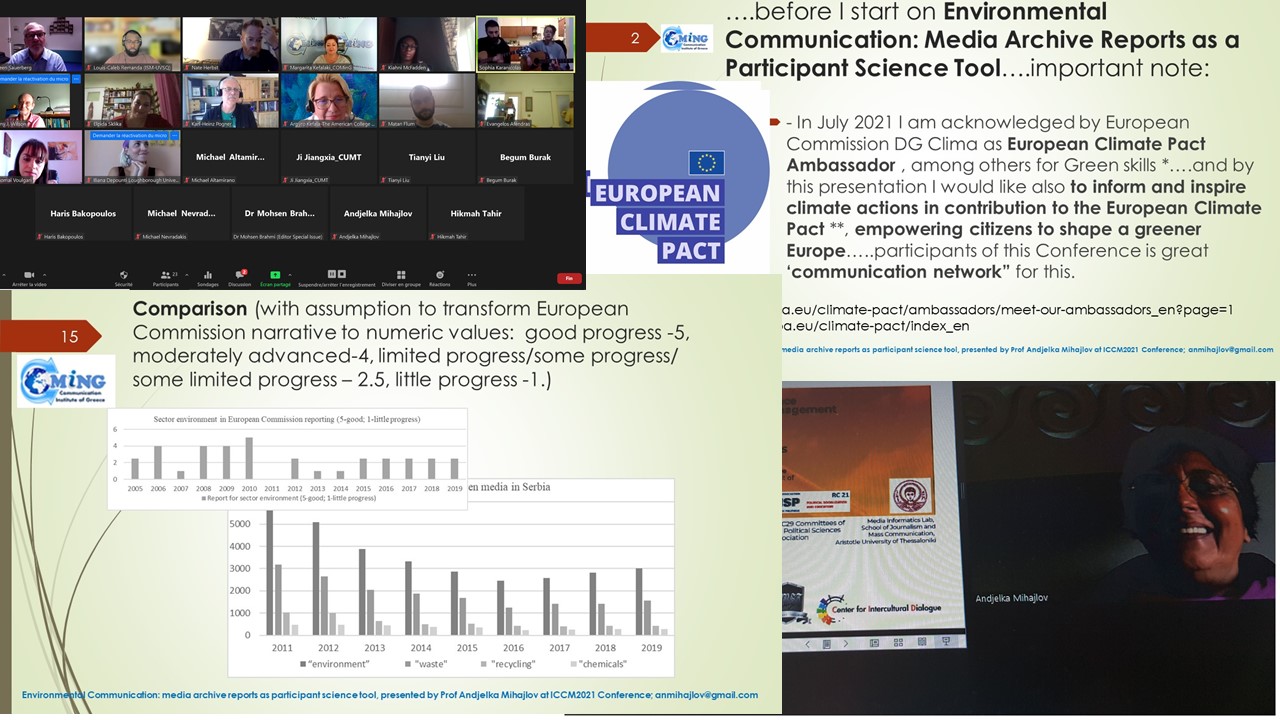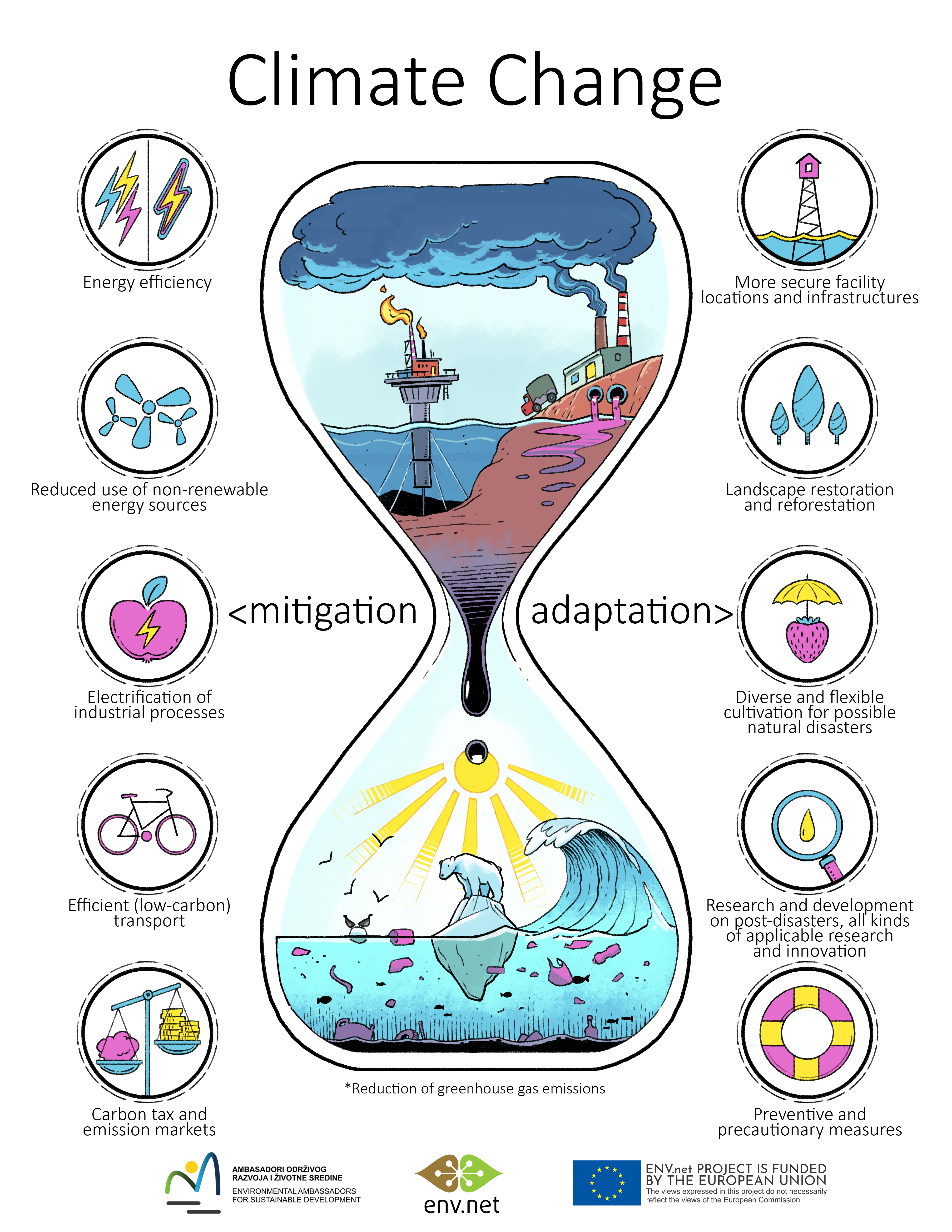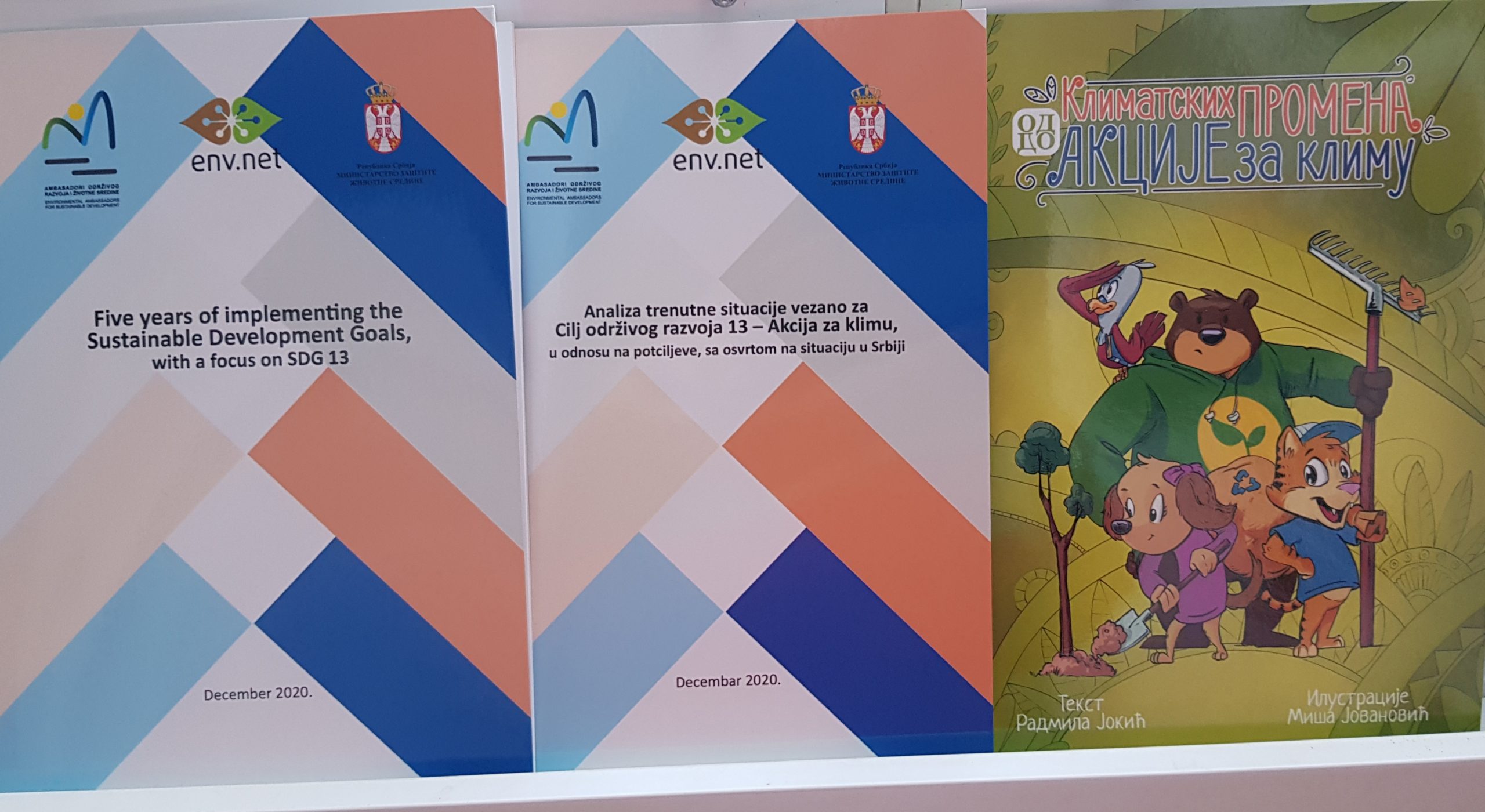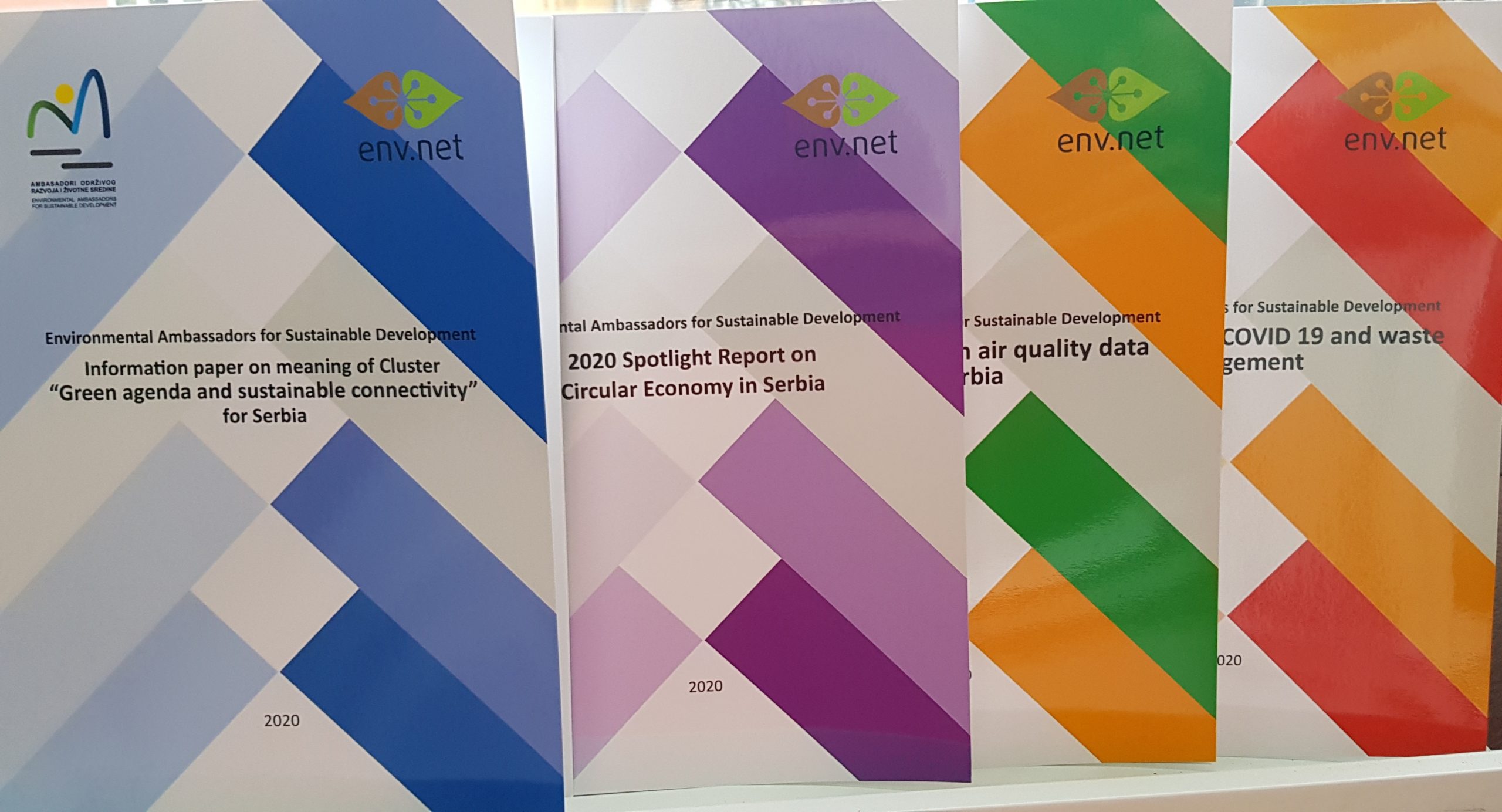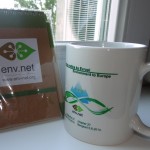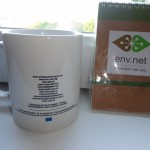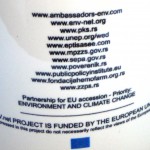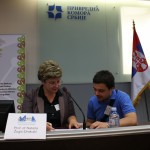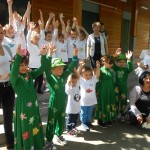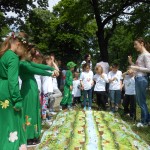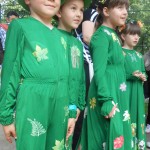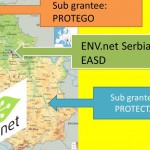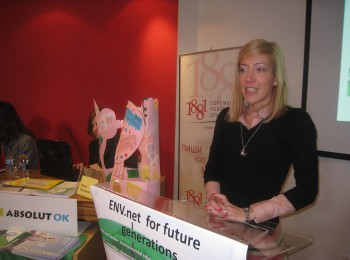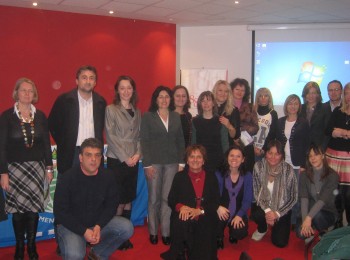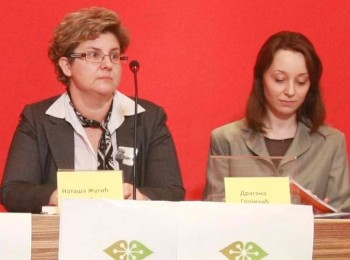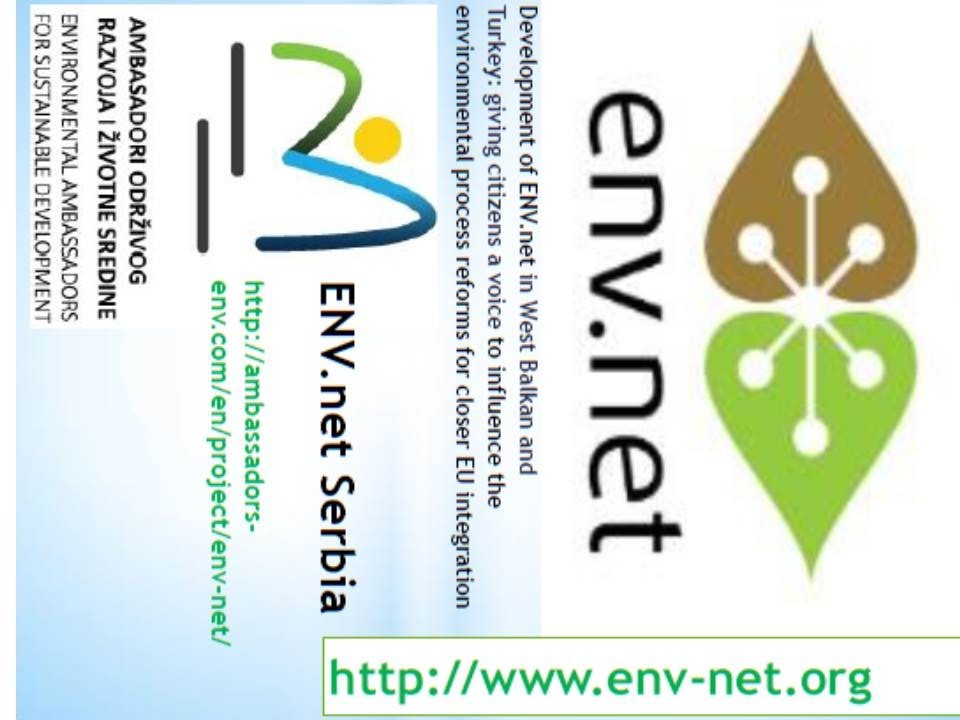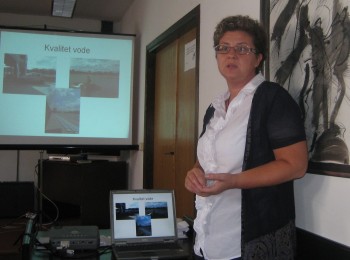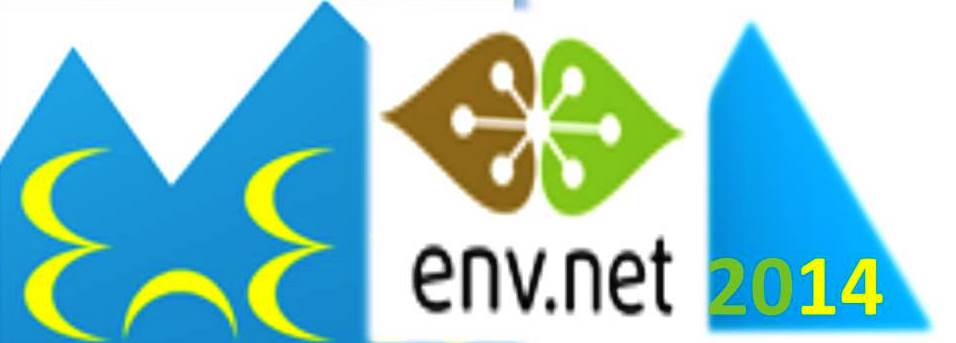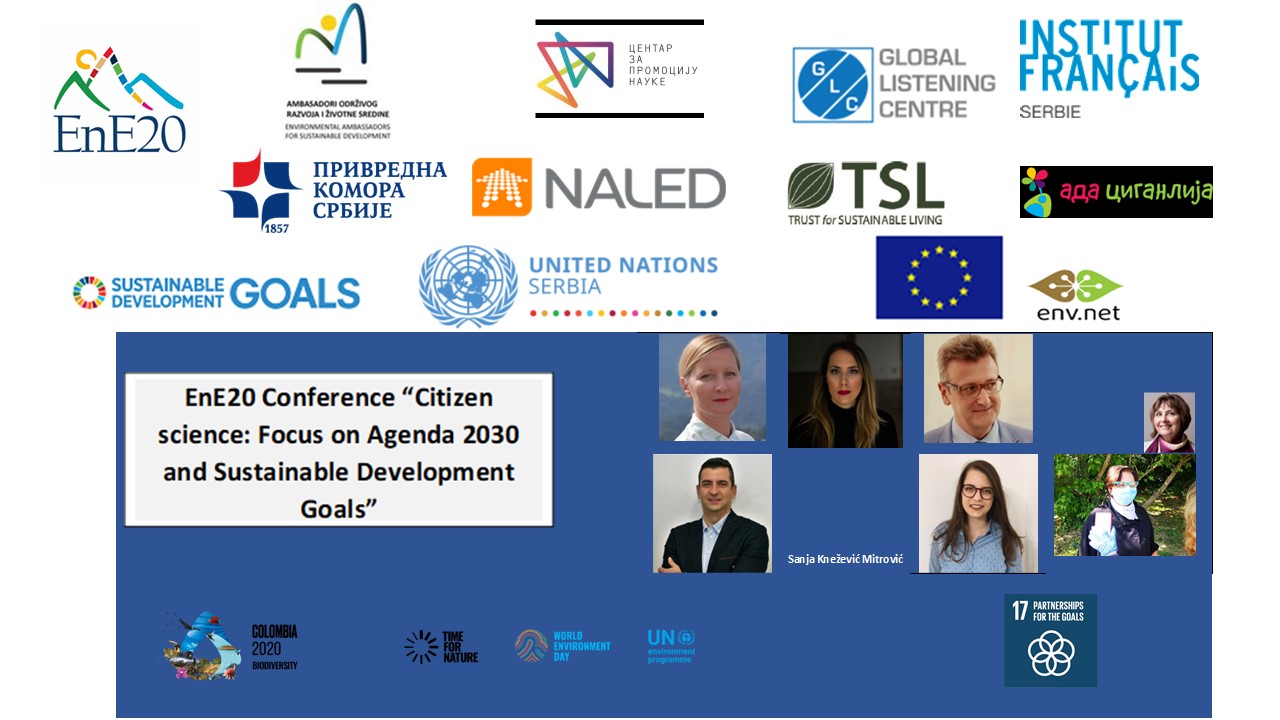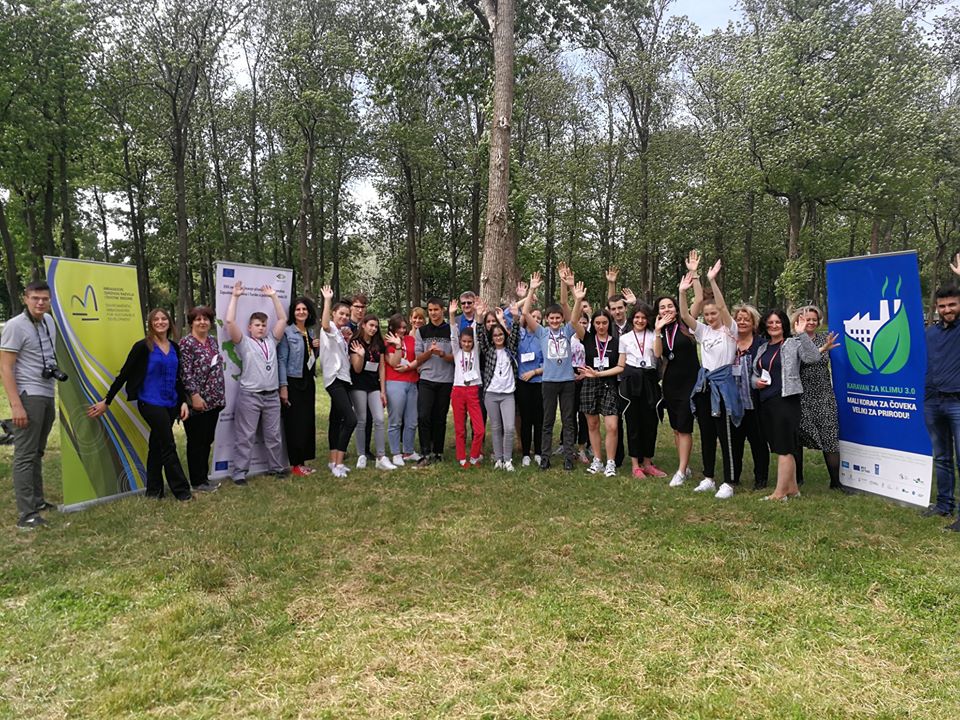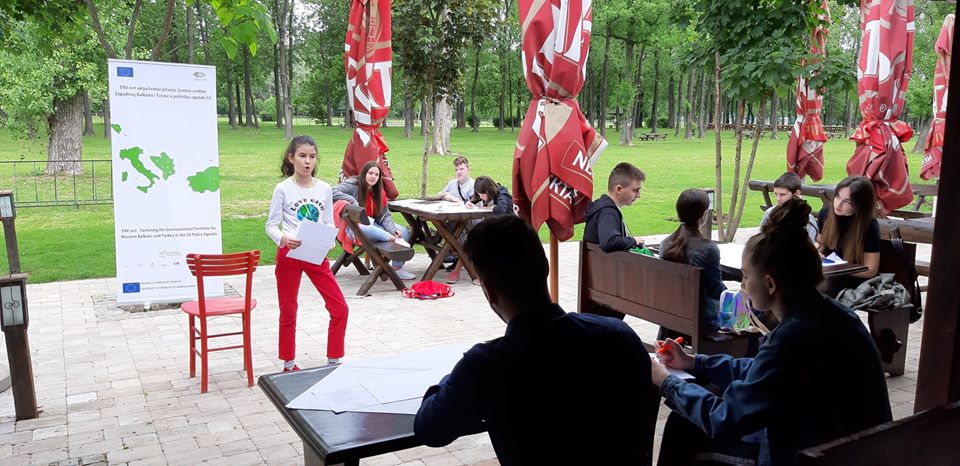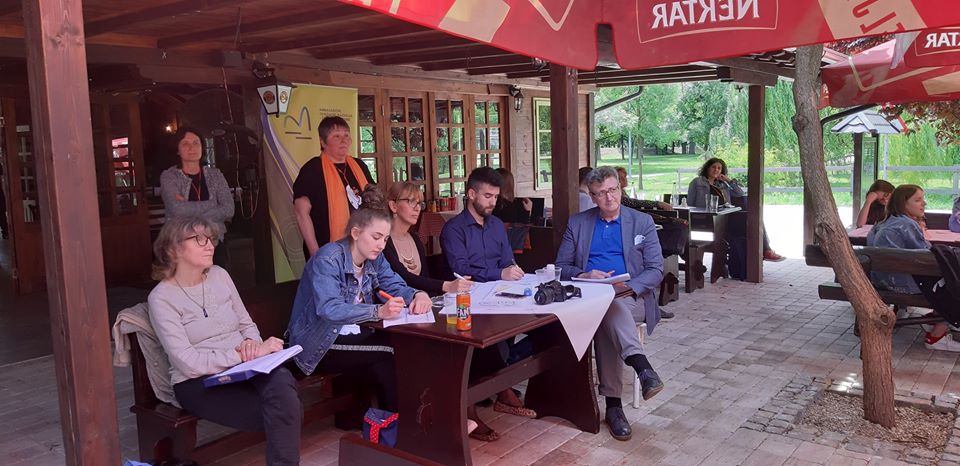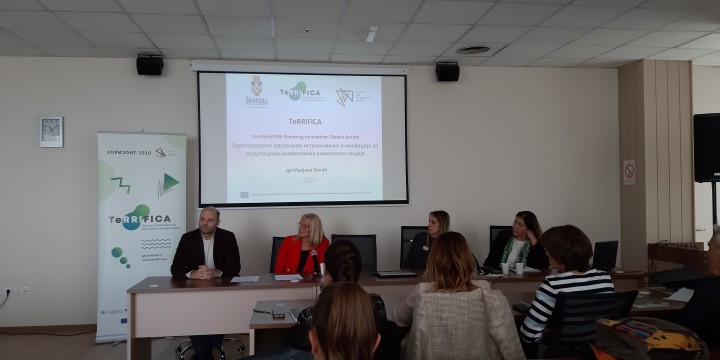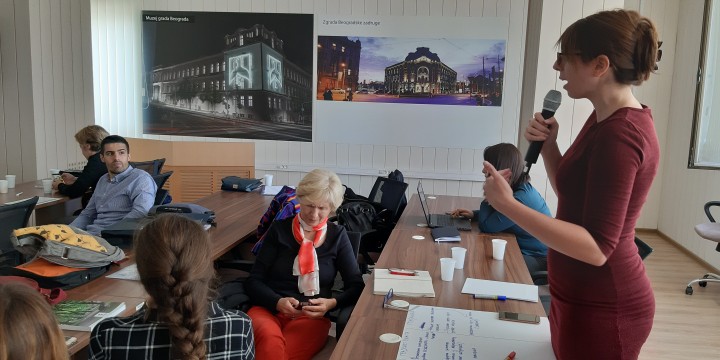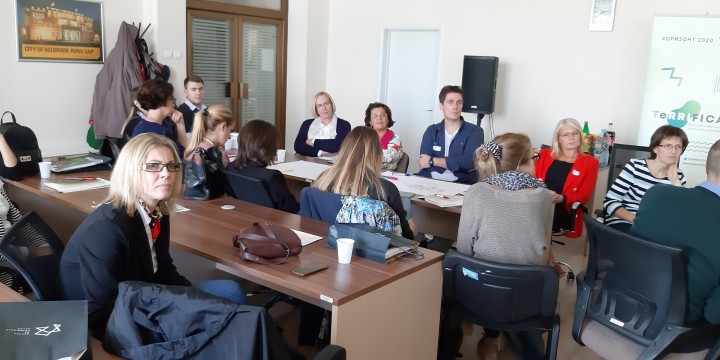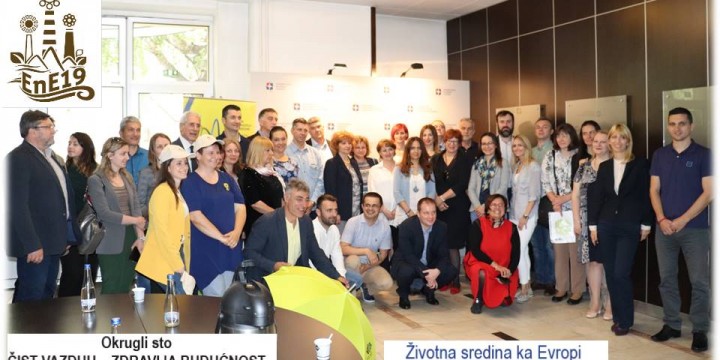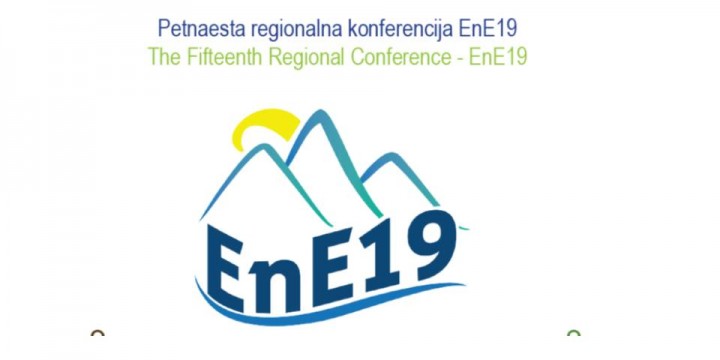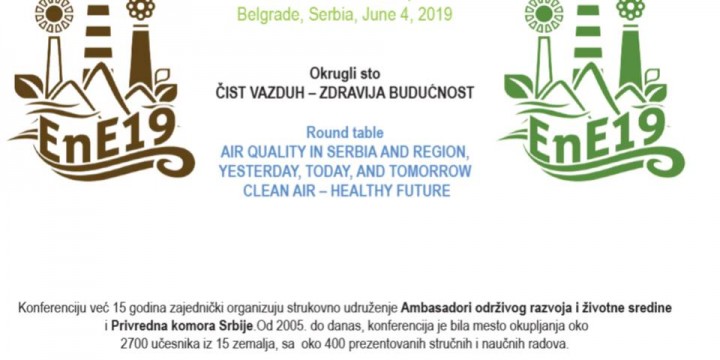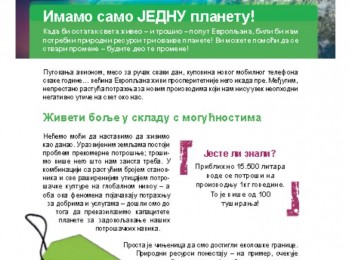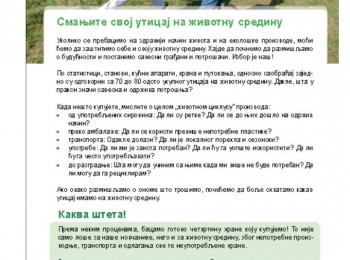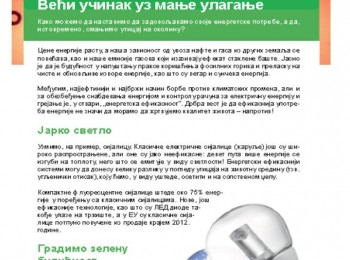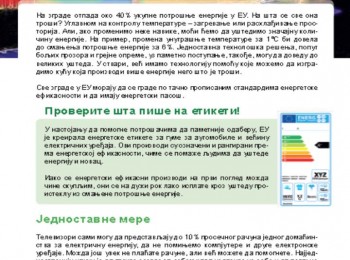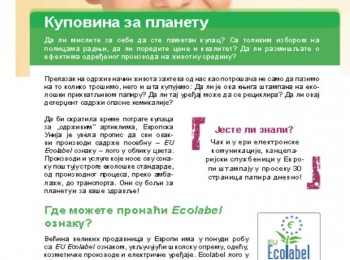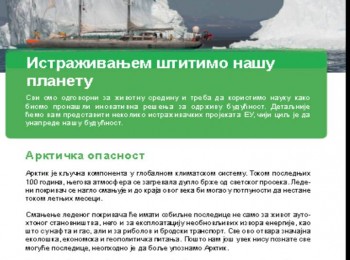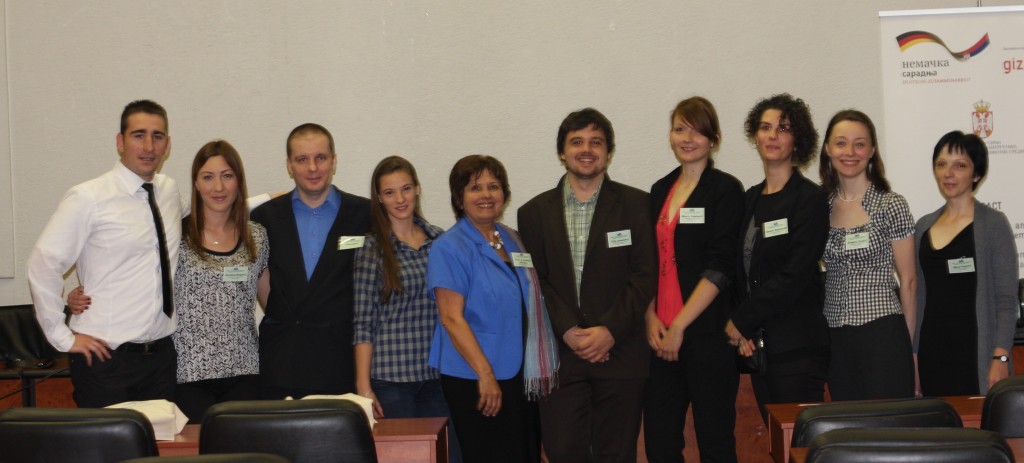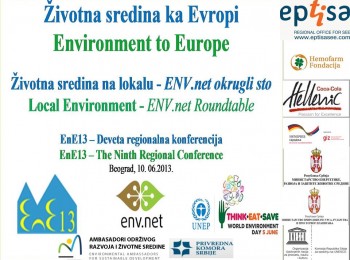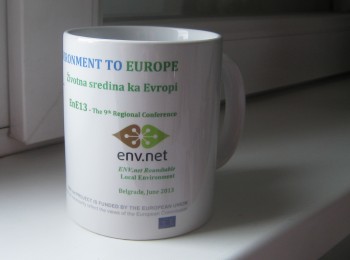Call to action for a tomorrow without toxics
Sign the Call to Action here:
https://docs.google.com/forms/d/e/1FAIpQLSecU8_1QRK983bsB1s92c0sHyVBv
adDWW2dW–T_46_JiWjgg/viewform
Urgent call for a strong SAICM-Beyond-2020-Framework ensuring sound chemicals and waste management!
Increasing chemical production, use of harmful chemicals, pollution, and waste are turning into a third planetary crisis[1], beside the climate and biodiversity crises, and at the same time exacerbating them. There is an urgent need for solution-focused actions along the whole lifecycle of chemicals and waste, addressing the threats to human health and the environment – from the enormous use of chemicals, poor chemicals and waste management, to the ever-increasing production and raw material extraction. The undersigned organizations stand together in urgently calling
on governments, industry, and other stakeholders to work towards a tomorrow without toxics. We urge them to actively reduce their chemical footprint and make prevention, reduction, and sound management of chemicals and waste a priority issue.
The current levels of chemicals used in industrial processes, agriculture and daily life products massively expose people and ecosystems to harmful substances.
Ubiquitous, excessive and often uncontrolled use of chemicals, their improper storage and disposal, and accidents, as well as the amount of waste in general and in particular mismanaged waste lead to harmful substances entering the environment, food chains, and human bodies. They poison air, soil and water, harm wildlife and cause biodiversity loss. Exposure to hazardous chemicals produces reproductive and neurological disorders, causes intergenerational effects, and the loss of livelihoods and food systems, among other things. The burdens fall disproportionately on the most financially oppressed, vulnerable and marginalized groups, such as Indigenous
Communities, people in the Global South, workers in industry and agriculture, women and children. This makes chemicals and waste management a cross-cutting issue.
The Strategic Approach to International Chemicals Management (SAICM) and the Dubai Declaration, adopted in 2006 by the First International Conference on Chemicals Management (ICCM1), aimed to achieve sound management of chemicals and waste throughout their life cycle by 2020.[2] Now, at the beginning of the year 2022, we see an even more urgent need for action. SAICM has identified important issues and created a multi-sector platform and multi-stakeholder process for action, involving governments, civil society, businesses and academics. However, the overall objective has not been achieved and progress made is insufficient and mainly limited to information collection, while only a few concrete risk reduction measures have been undertaken. Adverse impacts on human health and the environment from raw material extraction, chemical production, use and disposal continue.
There is no time to waste.
We need an agreement for a strong SAICM-Beyond-2020-Framework that goes beyond the Dubai Declaration on International Chemicals Management[3] and secures ambitious reduction and prevention of harmful chemicals and waste globally, bringing about real change, including the implementation of safe alternatives. Our vision is a world where chemicals and wastes are no longer a source of harm and where all people live in safe and healthy environments, free from toxic threats to ecosystems and to future generations. We call upon all stakeholders to commit to this goal and to increase engagement, expressing a concrete will to end the poisoning of our world. Put a
SAICM-Beyond-2020-Framework urgently into practice as follows:
● Recognize and implement the precautionary and sustainability principles as basic principles and rationale behind all measures. Follow the hierarchy of prevention, elimination and minimization of hazardous substances.
● Include the possibility to stipulate or initiate binding elements for chemicals and waste management throughout the whole lifecycle, including raw material extraction, production, use and disposal of chemicals.
● Set ambitious targets and milestones. Make national action plans binding for all SAICM stakeholders, which particularly promote implementation and monitoring. Include concrete activities to solve the Issues of Concern in SAICM national action plans as well as education and awareness raising measures. Ensure that groups of related chemicals are addressed in the framework and in related action plans
● Establish mechanisms for implementation and progress reporting, and independent monitoring, as well as mechanisms for compliance.
● Realize global implementation on all levels (i.e. local, national, regional and international levels) and ensure this through national action plans. Make a SAICM-Beyond-2020-Framework compatible with other global treaties
including a future legally binding Plastics Treaty[4] or a future international regulation on pesticides[5].
● Secure the multistakeholder and multisectoral character of SAICM. Ensure that the negotiation process is carried out in a way that guarantees equal and fair participation of all stakeholders and right holders, as well as the
possibility to bring in contributions, especially from the civil society.
● Guarantee solid, sustainable, and reliable financing by the internalization of external costs, according to the Polluter Pays Principle. This could be achieved through a coordinated tax on chemical feedstocks, levied by the
national governments where the chemicals are produced[6], ensuring and prioritizing the support for developing and emerging countries. Especially civil society organizations, Indigenous Communities, and science, including citizen science, should be eligible for funding. Further options to implement the Polluter Pays Principle are to be explored and implemented.
● Make sure that a SAICM-Beyond-2020 addresses the identified shortcomings of the predecessor framework and in particular, that solutions for all identified Issues of Concern (IoCs) are developed and new IoCs included when they are needed. Current IoCs must be kept until resolved[7]. This includes e.g. a global phase-out of highly hazardous pesticides (HHPs) and their replacement with agroecology in line with ICCM4 resolution, measures to reduce endocrine disrupting chemicals (EDC) exposure for humans and the environment, and transparency and traceability for chemicals in products.
● Guarantee globally equal safety levels for everyone and everywhere. States must ensure the protection of people and the environment through laws and regulations that hold producers accountable along the entire supply chain
and throughout the whole lifecycle. Eliminate unethical and unacceptable double standards.
● Support the approach of a binding Global Minimum Transparency Standard[8] as a first step for chemicals in products and the establishment of labeling according to UNEP SCP guidelines[9]. This can ensure transparency and
traceability, which are, together with the right to know, key requirements for a safe circular economy globally. It further helps to eliminate double standards and dumping of products in countries with less ambitious chemicals legislation, and to guarantee an equal level of safety for everyone everywhere.
● Ensure sensitivity to the different exposition and vulnerability of people and groups of people to hazardous substances, depending on their area of residence, occupation, social and economic status, age, and gender. Consider
that children are particularly vulnerable to hazardous substances and must be protected from being born pre-polluted.
● Better protect women from hazardous chemicals, by implementing gender responsive policies, mainstreaming gender-equality and collecting gender disaggregated data. Recognize and encourage the leadership role of women in society, politics and science, and also in a SAICM-Beyond-2020-Framework. Consider that women are more susceptible to harmful chemicals than men and have different windows of vulnerability, e.g. during pregnancy.
They are also exposed differently to toxic chemicals due to their gender roles.
● Recognize the principles and values of the universal human rights[10]. Support all right holders, according to the respective international resolutions and declarations[11].
● Recognize the principles of the Rio-Declaration on Environment and Development and the principles of the Agenda 2030, as basic principles.
● Acknowledge the role of chemicals and waste in the biodiversity and climate crises and take action to address these impacts through decreased chemical production, use and disposal, phase out of harmful substances and
implementation of safe and non-chemical alternatives
Urgent call for a strong SAICM-Beyond-2020-Framework ensuring sound chemicals and waste management!
“Citizen science” – definition in 2021 UNECE Document
Environmental Ambassadors for Sustainable Development (Environmental Ambassadors, EASD) is a non-for-profit professional association focusing, among other, work on research and science (professional and participant science/citizen science) promotion. EASD is the member of European Citizen Science Association.
With interest we are following the seventh session of the Meeting of the Parties to the Convention on Access to Information, Public Participation in Decision-making and Access to Justice in Environmental Matters (Aarhus Convention) taking place in Palais des Nations, Geneva from 18 to 21 October 2021. A number of substantive decisions are expected to be adopted at the session that will guide the activities of the Convention in the next intersessional period.
Among documents is document ECE/MP.PP/2021/20/Add.1. There, a number of definitions took our attention; some of them are: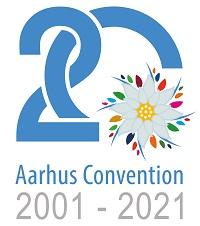
- “Citizen science”, means a form of open collaboration in which members of the public participate voluntarily in the scientific process, engineering research or environmental monitoring in various ways;
- “Citizen science observatories”, refers to community-based environmental monitoring and information systems that invite individuals to share observations, typically via mobile telephone or the web;
- “Research data”, means documents in a digital form, other than scientific publications, which are collected or produced in the course of scientific research activities and are used as evidence in the research process, or are commonly accepted in the research community as necessary to validate research findings and results;
- “Citizen science data”, means data collected by members of the public, often in collaboration with or under the direction of professional scientists, nongovernmental organizations and scientific institutions;
- “Citizen-generated data”, which means data produced through citizen sensing, citizen science and other forms of civic monitoring that share the common denominator that the data collection process is primarily carried out by volunteer individuals actively joining the initiative;
Environmental Communication: Media Archive Reports as a Participant Science Tool
EASD presented on August 3, 2021, research paper Environmental Communication: Media Archive Reports as a Participant Science Tool (Authors are A.Mihajlov, A.Mladenovic, F.Jovanovic) at 6th International Conference on Communication and Management (ICCM2021), hosted and organized by Communication Institute of Greece.
By sharing experience, this paper justifies environmental communication through the media archive reports as participant science tool, considering that journalists/media are representing citizens (with common interests). In the case of Serbia, illustrative justification that media archive reports could be used as participative tool to supplement official observation and monitoring, is presented, showing that the same trends of citizens/journalist’s attention to environment and environmental performance and progress (in the European Union accession process) in Serbia. In timeline, when sector environment has better performance, it is bigger interest of citizens/journalists/media to environmental issues.
This article benefited from the European Union funded project “ENV.Net Factoring the Environmental Portfolio for WB and Turkey in the EU Policy Agenda” (2017/394-372). The views expressed in this paper do not necessarily reflect the views of the European Commission. Also, authors would like to express gratitude to Media archive Ebart, Belgrade, Serbia for contribution in data collecting. Data used in this paper were gathered through the research on nexus media-environmental issues in Serbia, which was based on initial idea jointly developed by respective journalist Velimir Ćurgus Kazimir (1948-2018), Media Archive Ebart founder and this paper co-author Andjelka Mihajlov, co-founder of Environmental Ambassadors for Sustainable Development.
By this presentation Prof Mihajlov, as paper presenter, also informed and inspired climate actions in contribution to the European Climate Pact , empowering citizens to shape a greener Europe…..participants of this Conference was great ‘communication network” for this. To note that in July 2021 Prof Andjelka Mihajlov, Environmental Ambassador for Sustainable Development, was acknowledged by European Commission DG Clima as European Climate Pact Ambassador , among others for Green skills .
Ref.: Environmental Communication: Media Archive Reports as a Participant Science Tool (Authors: A.Mihajlov, A.Mladenovic, F.Jovanovic) , Abstract Book “Communicating in a ‘Modern’ Word” , 6th International Conference on Communication and Management – ICCM 2021, page 30, Edited by Communication Institute of Greece (COMinG), ISBN: 978-618-81861-9-4 (2021)
ENV.net
ENV.net project consists of ENV.net 1/2 (2012-2016) and ENV.net 3 (2017-2020) projects. EC supported
ENV.net 1/2: ENV.net – Development of ENV.net in West Balkan and Turkey: giving citizens a voice to influence the environmental process reforms for closer EU integration, EuropeAid/132438/C/
ACT/Multi – 2012/306-642 and 2014/351-610; Partners for project implementation are: Puntosud , EASD , Co-PLAN , EEB – European Environmental Bureau, ATRC and TEMA . The project builds on the experience of an EU-funded project, namely the Environment Forum, implemented in the period 2009-2012, aiming at developing capacities of environmental NGOs to establish a constructive dialogue with national authorities. The present project strategy has been designed to achieve a greater commitment and capacity of a group of CSOs coming from Environment Forum experience and which have agreed on the creation of a new network, the ENV.net, to support the civil activism, give citizens a voice and influence the public reform processes in the approximation to the environment acquis. With the view to further enhance their capacities to work with CSOs and to share experience with other European countries, EEB has accepted to participate and to share its experience. Project objective – Greater commitment and capacity of the ENV.net to give citizens a voice and influence public sector reform processes in the environment sector through analysis, monitoring and advocacy. As one of the outcome National ENV.net networks (to complement Regional ENV.net network) were established; established ENV.net Network in Serbia have 54 organizations (multistakeholders).
ENV.net3: “ENV-net factoring the environmental portfolio for Western Balkans and Turkey in the EU Policy Agenda” – EuropeAid/154870/ACT/Multi ; EASD (Serbia) partners for project implementation are: 4X4X4 Balkan Bridges from North Macedonia, European Environmental Bureau from Belgium, Advocacy Training and Resource Center, from Kosovo*, Green Home, from Montenegro, Lir Evolution, from Bosnia and Herzegovina, TEMA – the Turkish Foundation for Combating Soil Erosion, for Reforestation and Protection of Natural Habitats, from Turkey and Foundation Punto,Sud, from Italy. The project contributes to the improvement of environmental policy-making and implementation in compliance with the EU standards. To this end, the network foresees to contribute to both improved and intensified inter-action among actors (including environmental CSOs, media and policy-makers) and an overall more enabling technical and financial environment where these actors operate. The action sets out to strengthen the profile of ENV.net as the leading network and bridging actor in environmental policy-influencing in the WB and Turkey region (vis-à-vis EU). Further, it foresees introducing and initiating a discussion on the Circular Economy concept in the region, as well as intensifying climate change actions. The action also foresees a number of value-adding, cross-cutting elements such as inter-partner learning/exchange, networking, and thematic organisational support to third parties (i.e. local grass-root organisations, media).
____________________________________
Paper published: Andjelka Mihajlov, Aleksandra Mladenovic & Filip Jovanovic, Contribution to Environmental Communication: comparative analysis of two qualitative methods as the performance to European Union accession, in “Adapt to Survive. The role of social media, sharing and communication to ameliorate this world “, Conference Proceedings Book Edited by Margarita Kefalaki, Communication Institute of Greece (COMinG),Athens, p.57-66 , 2021 ( ISSN: ISBN: 978-618-85622-3-3 ), Available at https://coming.gr/wp-content/uploads/2021/12/1_1_2021_Adapt-to-survive_Book_conf-proceedings_COMinG.pdf
Selected activities:
March 2021:
Information paper on Climate Change and Energy
Information paper on Climate Change and Floods
August 2021: Environmental Communication: Media Archive Reports as a Participant Science Tool
Promotion by media (Da li smo spremni za sve češće poplave?)
December 31, 2020: ENV.net3 project final steps – infographics with documents developed by EASD
____________________________________
Report on monitoring the progress of national environmental legislation (Chapter 27) in 2018, 2019, and half-year 2020, with projections through end-2020 / Izveštaj o monitoringu napredovanja nacionalnog zakonodavstva o životnoj sredini (Poglavlje 27) u 2018., 2019. i prvoj polovini 2020. godine, sa projekcijom do kraja 2020.godine (Extended abstract in English, Full text in Serbian)
Position Paper on COVID 19 and waste management
Circular Economy goes beyond Waste Management presented at EurAsia Waste Management Symposium 2020
Information paper on meaning of Cluster “Green agenda and sustainable connectivity” for Serbia
Reflection paper on air quality data for Serbia
2020 Spotlight Report on Circular Economy in Serbia
EASD publication on circular economy acknowledged by European Circular Economy Stakeholder Platform
Virtual tour on the experience from Italian practices in circular economy
November 2020: Joint civil society statement for Sofia Summit
EASD research presented at EurAsia Waste Management Symposium
October 2020, New Momentum for the Environmental Agenda in the Western Balkans and Turkey?
Establishment of the South East European Platform to Beat Pollution – SEEPP
Recap the moments from EnE19/ENV.net Conference
March 2019: UN Environment : 4th Assembly (and pre- and side-events) , ENV.net related event
November 2018: To report: The first Regional Conference on Circular Economy was success ; The first regional conference on circular economy, Belgrade, November 2018: Agenda
Call for sub-grants (6.novembar 2018: Otvoren poziv za dodelu sub-grantova u okviru ENV.net projekta)
YRE competition: apply before February 1, 2019.; Theme: Energy Efficiency
ENV.net Initiative: to update National Strategy on Sustainable Use of Natural Resources and Goods, by applying Circular Economy concept ; ENV.net Initiative and Knowledge based advocacy: to update National Strategy of Sustainable Use of Natural Resources
Circular economy knowledge based advocacy in Eco-schools network in Serbia
May 2018. Guest lectures made at two Universities in Serbia: “Circular economy is concept and process, and still not full circle” ; Participation at the Green Parliamentary Group meeting
Follow project at : facebook.com/envnetsite/ and www.env-net.org
February 2018 – ENV.net 3 Kick-off Meeting in Tirana
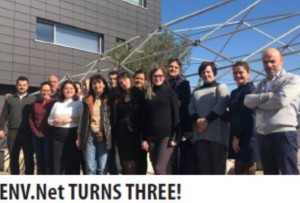 ________________________________________________
________________________________________________
In December 2017. we started with ENV.net 3 : ENV-net factoring the environmental portfolio for Western Balkans and Turkey in the EU Policy Agenda (reference number 2017/394-372)
ENV.net 3 – Serbia team include: Aleksandra Mladenovic –National Coordinator and Manager. In addition, Thematic experts/consultants, on demand, are Prof dr Andjelka Mihajlov and Filip Jovanovic, and Media communication expert, on demend, is Milica Momcilovic.
________________________________________________________________________________
Development of ENV.net in West Balkan and Turkey: giving citizens a voice to influence the environmental process reforms for closer EU integration – EuropeAid/132438/C/ACT/Multi – 2012/306-642 and 2014/351-610 (2012-2016)
The project builds on the experience of an EU-funded project, namely the Environment Forum , implemented in the period 2009-2012, aiming at developing capacities of environmental NGOs to establish a constructive dialogue with national authorities. The present project strategy has been designed to achieve a greater commitment and capacity of a group of CSOs coming from Environment Forum experience and which have agreed on the creation of a new network, the ENV.net, to support the civil activism, give citizens a voice and influence the public reform processes in the approximation to the environment acquis. With the view to further enhance their capacities to work with CSOs and to share experience with other European countries, EEB has accepted to participate and to share its experience. Project objective – Greater commitment and capacity of the ENV.net to give citizens a voice and influence public sector reform processes in the environment sector through analysis, monitoring and advocacy.
Partners for project implementation are: Puntosud , EASD , Co-PLAN , EEB – European Environmental Bureau , ATRC and TEMA . EASD Activity circles represent the scope of our activities.
Project launched site for presentation of activities in all participating countries, as well as facebook page and ENV.net Newsletters.
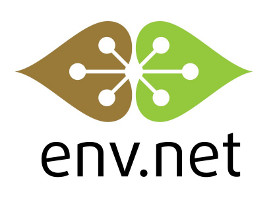 ENV.net 1/2– Serbia team include: Dr Nataša Žugić Drakulić –National Coordinator and Filip Jovanović – project manager , chosen in transparent process by „ Environmental Ambassadors for Sustainable Development“, partner organisation in this project. In addition, National consultant for European integration is Prof dr Andjelka Mihajlov , dr Hristina Stevanović Čarapina is leading expert .
ENV.net 1/2– Serbia team include: Dr Nataša Žugić Drakulić –National Coordinator and Filip Jovanović – project manager , chosen in transparent process by „ Environmental Ambassadors for Sustainable Development“, partner organisation in this project. In addition, National consultant for European integration is Prof dr Andjelka Mihajlov , dr Hristina Stevanović Čarapina is leading expert .
__________________________________
ENV.net Serbia network is functioning : Some of activities could be followed only in Serbian, like calls to participate, and other actions targeted to citizens in Serbia.
**************************************
Highlights: ENV.net publications
- A Guideline of EU Accession Monitoring Tools for CSOs in candidate and potential candidate countries: Chapter 27, (Authors and contributors: Andjelka Mihajlov, Natasa Zugic-Drakulic, Filip Jovanovic, Federico Bastia, Simona Pogliani, Mara Silina, Teida Shehi and Dusko Hristov), Published by Environmental Ambassadors for Sustainable Development with the financial assistance of the EU – ENV.net project document, Belgrade January 2015
- How to influence environmental policy through effective advocacy (Authors: Margherita Tolotto and Mara Silina), ENV.net Advocacy Toolkit, European Environmental Bureau, Brussels, January 2015
- Climate change and challenges of the enlargement (Authors: Anja Kolmuss, Dragana Mileusnic, Zanna Vanrenterghem and Richard Filcak), ENV.net Advocacy Toolkit, European Environmental Bureau, Brussels,September 2016
June 2016: Agenda, WED Messages from Serbia: 12th Regional Conference “Environment to Europe” , REPORT FROM EnE16-ENV.net, BELGRADE, SERBIA
April 2016 – ENV.net Course: CSO Participation in Accession Process , Chapter 27: CSOs participation
March 2016 – New internet portal: Greenweb
January 2016 – Save the date for EnE16-ENV.net Conference ; We participate: Regional Conference: „Sustainability of the FPAs” , Brussels . Water-food-energy-ecosystems nexus assessment in the Sava River Basin – Lessons learned and further steps
October – December 2015 – Ministry support to ENV.net , Event
October – Partnership for Climate Change issue : Serbia’s climate talks – on the way to Paris
June 11 – European Commission Vice-President Mr Maroš Šefčovič had meeting with CSOs in Belgrade. EASD participate!
June 7 – Bicycling-ENV.net promotion in town Gornji Milanovac , Green day in Gornji Milanovac
June 5 – Regional Conference ”Environment to Europe” EnE15 – ENV.net EU Environmental Horizontal Legislation: Methods, Standards and Tools , Invitation , AGENDA , Proc. of papers
May 26, 2015 – Promotional activity
April 21, 2015 – Participation in Public Hearing on Climate Change related challenges in Republic of Serbia
April – THE ELEVENTH REGIONAL CONFERENCE ENVIRONMENT TO EUROPE – ENE15 – ENV.NET acknowledged as the European Sustainable Development Week event
March 22 – Celebrating the World Water Day in Serbia: field visit to Ada Ciganlija
February 2, 2015: Invitation for EnE15-ENV.net Conference launched
January 29, 2015: A Guideline of EU Accession Monitoring Tools for CSOs in candidate and potential candidate countries (ENV.net region): Chapter 27 , document finalized
January , 2015: Promotion of Publication
December 31: Thematic Publication “Environment to Europe”, 2014 ( Tematski zbornik radova “Životna sredina ka Evropi”)
December 12: ENV.net Serbia Seminar: Environmental Education in Schools
November 24-25, ENV.net on the margins of ECF Annual Meeting in Brussels with European Commision
November 4-5 , Regional training on the process of designation of potential Natura 2000 sites
October 30 – Conference “EU accession in the field of environmental protection and the role of local authorities”
October 28 – Ministry of Agriculture and Environmental Protection is co-funded ENV.net project , contract signed
October 22-23, Belgrade: ENV.net training: “EU project design process and Implementation of environmental policy”, Invitation , Agenda , Training
October 2014 – ENV.net brochure published and presented
October 14 – ENV.net related: Participation on Conference “Eco-standards and Education”
October 8 – “Little progress has been made in the areas of environment and climate change”
September 29 – ENV.net Round-table Dialogue for Green Future (ENV.net okrugli sto sa niškim srednjoškolcima “Dijalogom ka zelenijoj budućnosti“) (sub-grant)
September 23-25, Brussels: ENV.net preparatory partnership meeting and Framework Partnership Agreement (FPA) Closing Event for Phase I
September 19-24 , We are following Explanatory Screening for the Chapter 27
August 29 – ENV.net (sub-granting) publication published PUBLICATION : “Species of plants and animals of special conservation concern in EU” , in Serbian
July 27 – Partnership with media – Radio Beograd 2
June 19 – Eco-package initiative as the example environmental education for the future EU citizens
June 5 – CONFERENCE , ENV.net multi-stakeholder Conference on Chapter 27: about 200 participants
June 4 – Meeting with media , Moments from the Conference for Media
May 29, 2014 – ENV.net Serbia Conference organisation on the good track –Agenda for EnE14/ENV.net Conference “Environment to Europe”, June 5, 2014 in SCC – opening at 10:00
May 22-24, 2014 – 4th Partners Meeting in Milan
May 13, 2014 – European Solar Days – participation in promotion of EU environmental values
May 10, 2014 – ENV.net Let us clean up Europe! event: Ada Ciganlija Beograd ; ENV.net Serbia with children, parents and teachers “cleaning up Serbia” , Event in pictures
May 22-24, 2014 – 4th ENV.net Partners Meeting in Milan
May 7-8, 2014 – Some of ENV.net Partners meet in the corridors of ECRAN ECF Meeting
April 25, 2014 – UNEP acknowledged EnE14-ENV.net 2014 Conference as the World Environmental Day Event
April 5, 2014 – Education for future citizens of EU: guest lecturing at the Law Faculty
April 4, 2014 – EU Delegation to Serbia: Consultative Meeting with CSOs on progress towards EU in 2014
Aprl 4, 2014 – We participated to the meeting related to EU-Serbia Civil Society Joint Consultative Committee – JCC
April 2, 2014 – ECRAN NGOs Environment and Climate Change Forum – Evaluation Outcome – Congratulation to ENV.net partners!!!!
April 1, 2014 – Protego and Protecta sign subcontracting contracts
Marc 20-9, 2014 – EASD written contribution to the 2014 Progress Report
March 25, 2014 – Participation on UNECE consultation related to the 3rd EPR for Serbia
March 23, 2014 – ENV.net sub-grants winners announced , ENV.net
March 20, 2014 – We participate on Panel at Faculty of Organisation Sciences – University of Belgrade : Knowledge about Environment
March 9, 2014 – Technical (formal requests) evaluation of sub-grants application finished: 45 projects eligible for further evaluation
March 6, 2014 – Promotion of global activity EARTH HOUR (Marh 29, 20:30-21:30) and call for participation
March 4-6, 2014 – We participate in Zagreb on Workshop on Water-Food-Energy-Ecosystems Nexus Assessment in the Sava River Basin
From February 2014 – EU negotiation process: we are following explanatory screenings
February 26, 2014 – In accordance with procedure, QUESTIONS by potential applicants with our ANSWERS are posted on web site on February 26, at 07:00 , taking in account questions received by February 25 at 23:59
February 20-21, 2014 – EASD-ENV.net Serbia participated in defining the first strategic framework for CSOs development
February 18,2014- Knowledge based advocacy: Environment should be within priorities in the negotiations with EU
February 13, 2014 – Environment in youth policy in Serbia
February 12, 2014 – Meeting with ENVAP2 Project representatives
February 7, 2014 – Participation on Training related the Sector Planning Documents – SPDs
February 1, 2014 – Call of proposals for ENV.net sub-granting in Serbia “EU: we watch and learn to be ready!”
January 30, 2014 – Participation on public hearing by the European Economic and Social Committee (EESC) Study Group
January 30,2014 – Thematic meeting of the SECO mechanism on IPA II programming
January 30, 2014 – Participate in the Mapping of CSOs and other stakeholders in in the process of EU accession negotiations
January 19, 2014 – EASD / ENV.net Team reading of European Parliament Resolution, January 2014
January 07, 2014 – Starting preparation for ENV.net 2014 Round-table / Conference
January 2, 2014 – Attention to ENVIRONMENT in EUROPA DAIRY
_______________________________________________________________
December 23, 2013 – Workshop on environmental values for kindergarten children from Sombor (Minutes) , Participation on meetings in Nature Protection Institute and Agency for Environmental Protection
Decembar 20, 2013 – In media : Promotion of knowledge based information
December 20, 2013 – Environmental Education for future EU citizens , Minutes
December 17, 2013 – ENV.net region news: European Affairs ministers give green light to Serbia’s EU negotiations
December 16, 2013: Workshop for strategic planning of further work SECO mechanism
December 3, 2013 – ENV.net presented to the master students of Faculty of Security Studies
December 2, 2013 – Eye on EU integration process: Parliament of Serbia , Eye on SEE regional cooperation
November 28, 2013 – Meeting FPA project grantees with DG Enlargement representative
November 25, 2013 – Partnership with Media : Partnership agreement with Journalist’ Association of Serbia
Environmental Education of future EU citizens: Activity on November 19,2013
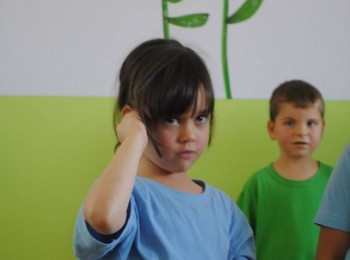 |
Acknowledging the outreach of ENV.net Survey and ENV.net 2013 Roudtable recomendations, EASD – ENV.net Serbia recognized importance of children/youth education for active EU citizenship , through promotion of EU environmental values. We would like to share moments from kindergarten “Pčelice”, from village Šetonje, as promotion event for environmental values in education. With children and teachers, as well as EASD Team, there were Prof dr Ivica Radovic and mr Ljubiša Antonijević, assistant ministers for education and science. |
Partnership with municipality – On November 18., 2013, ENV.net project presented on the Round table in Municipality Vračar (within City of Belgrade).
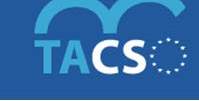 Cooperation with TACSO Serbia – On November 15. 2013, in Belgrade, TACSO Advisory Committee (LAG) organized a consultative meeting with representatives of civil society organizations and networks and Serbian civil society expert community. At the meeting a draft of a document on the assessment needs of civil society in Serbia was discussed.
Cooperation with TACSO Serbia – On November 15. 2013, in Belgrade, TACSO Advisory Committee (LAG) organized a consultative meeting with representatives of civil society organizations and networks and Serbian civil society expert community. At the meeting a draft of a document on the assessment needs of civil society in Serbia was discussed.
 EASD prepared Opinion and contribution to the Draft Strategy Paper for the Republic of Serbia 2014-2020. Through SECO mechanism opinion is sent to Governmental Office for European Integration. Opinion is based on Serbia 2013 Progress Report and Strategy – Reading by ENV.net Serbia Team .
EASD prepared Opinion and contribution to the Draft Strategy Paper for the Republic of Serbia 2014-2020. Through SECO mechanism opinion is sent to Governmental Office for European Integration. Opinion is based on Serbia 2013 Progress Report and Strategy – Reading by ENV.net Serbia Team .
Organisation capacity building process: EASD acknowledged becoming IPEN network Participating Organization
Eye on environmental laws changes: monitoring compliance with EU directives
November 2013. – The third ENV.net partnership meeting in Milan
28. October – Meeting with European Parliamentarians
ENV.net Serbia Team prepared document: Reading of 2013 Progress Report for Serbia and Strategy by ENV.net Serbia Team ( Serbia 2013 Progress Report and Strategy – Reading by ENV.net Serbia Team ).
____________________________________________________
22. and 23 October – Education on sustainable management of lead/chemicals
October 18 – EC Delegation in Serbia, present to relevant CSOs, on October 18, 2013 , Serbia Progress Report 2013, in which the Commission services present their assessment of what Serbia as the candidate country has achieved over the last year.
October 2013 : Participated on different events organized to raise awareness to EU approximation environmental challenges.
Promotion of ENV.net facebook page!
October 2, 2013 – ENV.net team participated at the First SEE Regional Science Promotion Conference (SCIPROM), opened in Belgrade, with the aim to bring together science promotion professionals, practitioners and enthusiasts to share experience and network in order to strengthen the link between science and society in our Region. In the current competitive global environment it is an imperative to enhance economic and social capacities by improving the educational structure of society, inspiring innovation and technological advancement and creating a milieu for appreciation of the value and benefits of knowledge. In the opening address, Minister for Education, Science and Technology development of Serbia underlined, among others the importance of knowledge based actions, as well as the importance of drinking water for development. Conference bring international experts and representatives of international organizations, research and educational institutions, science camps, science communicators, NGOs, private sector and media on board.
This conference justify the path of ENV.net Serbia implementation and development, linking European Integration, Knowledge based activities and sectors : Education, Science and Environment/Natural Resources.
____________________________
Waste management and water management are considered as two important segments of environmental acquis and studies in this area represent an important aspect of ENV.net project. Environmental accession status of Serbia ( waste , water and EIA thematic issues) was presented by EASD team at International Conferences in Vienna (Austria) and Zadar (Croatia), as well as on chemicals at SAICM Regional Meeting (Skopje, Macedonia FYR).
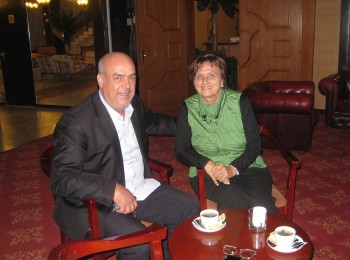 In addition, possible ENV.net partnerships are discussed with other participants and interested CSOs.
In addition, possible ENV.net partnerships are discussed with other participants and interested CSOs.
In Skopje, EASD representative met Macedonian 4x4x4 BB representative on September 26, 2013, to discuss possible enlargement of ENV.net project to Macedonia.
________________________________________
Promotion of ENV.net site in place Join us!
Added value for ENV.net Serbia is EASD activities within the development of Post-Rio+20 Agenda.
Office for Cooperation with Civil Society organized on September 6, 2013 Conference devoted to negotiating Chapter 27 (Environment). Presentation (in Serbian) from the Conference includes: Poglavlje 27 pregovori, Iskustvo R Slovenije, Natura 2000 Ministarstvo, Uloga civilnog drustva u monitoringu, Natura 2000 NGO )
September 2013: ENV.net project presented in the Ministry of Education, Science and Development of Serbia (Meeting of the National Committee for Environmental Education Programs)
August 2013. – Snapshot analysis : While waiting for EC 2013 Progress Report
___________________________________________________________________
ENVIRONMENT TO EUROPE – EnE
This project/process present different phases towards European values, as well as globally values promoted through Multilateral Environmental Agreements. Started to raise awareness of the importance of the UNECE Ministerial “Environment for Europe” Belgrade 2007 Conference, and further continuously is mobilizing interesting parties in Serbia and Region to catalyze environmental and sustainable development.
Within “Environment to Europe” Process, EASD actively participate and organize different supporting activities in different related thematic areas, like sustainable consumption and production, efficient resource use, chemicals, eco-consumers protection, participation at global, EC, regional and with papers at different conferences, etc. Regional cohesion projects supported Environment to Europe process.
__________________________________________________
EEB 2022 ANNUAL CONFERENCE – “Boosting the Deal for a Greener Europe in Turbulent Times”
Study visit to Grenoble – the Green Capital of Europe
EnE22, June 2022 – UNEP@50 and World Environment Day
December 2021 – Climate Pact for Serbia: Snapshot targeted rehearsal of country’s obligations in climate action….
Virtual tour on the experience from Italian practices in circular economy
Recap the moments from EnE19/ENV.net Conference
WEBINAR – Regional Forum of Sustainable Development (RFSD) for the UNECE Region : we participate
EASD full member in European Environmental Bureau – honor and challenge
The ESDN Conference 2018 – we participate ; We participate – ESDN Conference 2018, “Stakeholder-Policy Cooperation in the Age of the SDGs: What new approaches are required to be successful?”, Vienna (Austria), 1-2 October, 2018
Join us for June 5th: Conference Agenda is available
6th UN regional meeting on SAICM, Poland, February 2018: we participate
February 2018: Call for participation for EnE18: Nature protection – Nature-Responsive Development
February 2018: ENV.net 3 Kick-off Meeting in Tirana
November 2017: EASD participate: Summit to Plan the End of Amalgam in Europe 2017– November 20-21, Berlin
September 2017: “Make Mercury History” – EASD participated at Minamata COP1 in Geneva
July 2017: Civil Society Forum in Trieste, 11-12 July 2017 – we (EASD) participate ; Good signal: Serbia gets (again) separate Ministry of environmental protection
June 2017: Climate Change Education for Sustainable Development
April 2017: Call: The Thirteenth Regional Conference ”Environment to Europe – EnE17″, June 5th 2017, Belgrade
February 2017: “EnE17 – The 13th Regional Conference Environment to Europe” announcement: Climate Change Education
June 2016: Agenda , EnE16-ENV.net Zbornik radova/Proceedings of papers ; WED Messages from Serbia: 12th Regional Conference “Environment to Europe” , REPORT FROM EnE16-ENV.net, BELGRADE, SERBIA
January 2016 – Save the date and participate: June 6, 2016 – Environment to Europe Conference
June 5, 2015 – 2015 Conference, Information, Proc. of papers
We participate at European Green Week
December 2014 – Thematic Publication “Environment to Europe” ( Tematski zbornik radova “Životna sredina ka Evropi”)
June 5, 2014 – ENV.net multi-stakeholder Conference on Chapter 27: about 200 participants , 2014 Conference
Agenda for EnE14/ENV.net Conference “Environment to Europe”, June 5, 2014 in SCC – opening at 10:00
Invitation for EnE14-ENV.net Conference, June 5 – 2014 in Belgrade
EnE14 / ENV.net Conference will be held on June 5, 2014 in Belgrade (it will 10th regional conference!). Thematic focus: Chapter 27. Reserve the date! More information soon. Follow the updated information related to event.
__________________________________________________
EnE13 – Environment to Europe Conference on June 10, 2013 is focused on local environment. The main messages from this participatory ENV.net event are: environmental sector activities should be knowledge based, and education for environment and sustainable development should be priority. Capacities and continuity is very important for inclusion environment in other sectoral policies. Conference is institutionally supported by Ministry of Energy, Development and Environmental Protection and Ministry of Natural Resources, Mining and Spatial Planning, as well as National Commission for UNESCO. This Conference is UNEP WED event.
| 2013 | EnE13 | ENV.net Roundtable Focus: Local Environment | Agenda, Zbornik radova EnE13 – Zivotna sredina ka Evropi – Papers Proceedings; Minutes; More than 120 participants at EnE13 conference/ENV.net Roundtable: 10 June, 2013 in Belgrade |
Snapshots from the previous EnE “Environment to Europe” Conferences:
| Thematic focus | Published materials | ||
| 2005 | EnE05 | Thematic focus : The importance of Environmental Sector in EU Integration process | Detailed Agenda published.CD Proceedings of Papers published. Book “Sustainable Development and Environment towards Europe in 95+ steps”, by A.Mihajlov, published in Serbian |
| 2006 | EnE06 | European/developed countries values in environmental and related issues; lessons learned. At the same time, the Civil Society Forum EfE07 Meeting towards UN Pan-European Ministerial Conference Belgrade 2007 “Environment for Europe” held. | Detailed Agenda published.CD Proceedings of Papers published. Book “Sustainable Sustainable Development and Environment Towards Europe in 95+ Steps”, by A.Mihajlov, published in English |
| 2007 | EnE07 | Dedicated to contribute to upcoming UNECE “Environment for Europe” (2007, Belgrade) Pan-European Ministerial Conference ; NGO Declaration on Environmental Cohesion of Western Balkan agreed | Detailed Agenda published.CD Proceedings of Papers published. |
| 2008 | EnE08 | Youth and Vulnerable Groups in Environmental EU Accession | Detailed Agenda published. EnE08 Zbornik radova 4. regionalne Konferencije „Zivotna sredina ka Evropi“-sadrzaj published. |
| 2009 | EnE09 | Climate Change and Sustainable Tourism Conference | Detailed Agenda published (agenda EnE09) ; CD Proceedings of Papers published. |
| 2010 | EnE10 | Green Education and Green Economy | Detailed Agenda published ( Agenda EnE10 Konferencije ); CD Proceedings of Papers published. |
| 2011 | EnE11 | Rural and Mountain Sustainable Development | Detailed Agenda published (agenda_ene11) CD Proceedings of Papers published. Publication with selected paper published. |
| 2012 | EnE12 | Learning event for Rio=20 preparation – Green Economy and Governance for Sustainable Development | Detailed Agenda published ( Agenda EnE12 )
CD Proceedings of Papers published. UNDP/UNEP Green Economy Study published http://sustainabledevelopment.un.org/content/documents/984serbia.pdf |
Feminist response to Covid19
EASD is organization working across global movements centered on human rights, sustainable development, and
economic and social justice; partner feminist organisations come together in a moment of collective organizing to outline key principles for a just and resilient recovery from the ongoing global pandemic, as well as to track responses and uplift collective action of feminists around the world.
The COVID19 pandemic is upending economies, changing mobility patterns, disrupting social networks, altering informal and formal workplaces and flows, and redefining the concept of essential work and who performs it. EASD already address the issues at EnE20 Conference, and by E-campaign.
KEY PRINCIPLES FOR FEMINIST RESPONSE TO COVID19 are cross-cutting to all these principles is the promotion, protection and fulfillment of human rights and gender equality:
- COVID19 responses must centre the well-being of all people in an intersection manner
- COVID19 responses must ensure the health and safety of all, including ensuring sexual and reproductive health and rights
- COVID19 responses must promote a comprehensive paradigm shift, relying on adequate and equitable financing
- COVID19 responses must be based on and strengthen democratic values
- COVID19 responses must promote a just and equitable transition for people and planet
- COVID19 responses must be guided by cooperation, multilateralism and global justice
June 5,2020 – EnE20 Conference “Citizen science: Focus on Agenda 2030 and Sustainable Development Goals”
Professional association “Environmental Ambassadors for Sustainable Development ” and Serbian Chamber of Commerce , on June 5th 2020, organize the 16th Environment to Europe – EnE20 Conference. Traditionally, it is an official event that marks the UN World Environment Day (WED) in the Republic of Serbia and region.
In accordance with the current circumstances around Covid19, the EnE20 conference “Citizen Science: focus on Agenda 2030 and Sustainable Development Goals” is realized online, presenting the results so far achieved in the development of citizen science concept in Serbia. Bearing in mind that the concept of “citizen science” in Serbia is still developing, but supported through various joint actions and initiatives of scientists and formal / informal civic activists and organizations, the focus is to youth participation, especially through educational institutions involved in international Eco-schools program in Serbia.
This year, the co-organizers of EnE20 are the UN in Serbia , the Global Listening Center , the Center for the Promotion of Science , NALED , the French Institute in Serbia and PE Ada Ciganlija .
Plenary lectures of experts from the Serbian Chamber of Commerce, the Global Listening Center, the Center for the Promotion of Science, NALED and the Environmental Ambassadors for Sustainable Development, can be found at the link HERE. Invited speakers include dr Tanja Adnadjević, dr Marjana Brkić, mr Dušan Stokić, Slobodan Krstović, Sanja Knežević Mitrović, Đurdjija Petrović, and Prof dr Andjelka Mihajlov.
As part of the celebration of World Environment Day and as a special part of the EnE20 conference, a national debate is held for 20 students aged 11 to 18, who were nominated in the essay part of the competition organized by the international organization The Trust for Sustainable Living . The aim of the debate is to find solutions for a sustainable future by referring to SDG 17, My vision: Partnerships for a sustainable future. The emphasis of the speakers will be on the issues related to the environment, climate change and sustainable use of resources. By listening the young people and their visions, we can harmonize further economic and social development with the possibilities and potentials of the environment and nature.
The debate is taking place on Ada Ciganlija, a beach that has been awarded for 9 years by Blue Flag certificate, including the 2020 season, as a symbol of commitment to environmental protection and care for the health and safety of visitors during the summer bathing season. By meeting the criteria for obtaining the Blue Flag for Ada Ciganlija beach, the local community and the managers of the beach contribute to efforts to combat against climate change and raise citizen awareness on sustainable use of resources and the need to protect the environment.
Agenda and presentations, as well as detailed agenda of National Youth Debate
Minutes from Debate:
EU info center on debate and conference
Radio Television Serbia Portal about the Conference
The EnE20 conference is part of a campaign related to climate change, within the project: “ENV.net factoring the environmental portfolio for WB and Turkey in the EU Policy Agenda” (reference number 2017/394-372)
All information regarding the EnE20 conference can be obtained via Email: eneconference@feeserbia.com.
Citizen science concept in terms of adaptation and mitigation to the climate change
“Citizen Science refers to the general public engagement in scientific research activities when citizens actively contribute to science either with their intellectual effort or surrounding knowledge or with their tools and resources” .
In last decade, direction in science development moved from traditional circle of research to the new ways, by involving the public and becoming more and more inclusive in a growing range of disciplines. Historically this is not new that universities/academic researchers need to start involving public, citizens, civil society organizations… in their own activities (like Benjamin Franklin or Charles Darwin in the topics of topics that include applied life sciences and health research. It is evident that Citizen Science grows, reflecting in creation of large data sets (especially in monitoring and observing. The main challenge and very applicative approach is to involve citizen scientist in research of the topic that is very important for every unique life and that tackle every single citizen – CLIMATE CHANGE.
It is a question how citizens can be involved. Let we see some facts regarding ongoing climate change issue globally and in Serbia. The fact known wider is that from 1850 until know, temperature raised for 1 degree. The problem is that in relatively short period of time, temperature rises continually. Regarding Serbia, developing country, some of the consequences are following:
At the yearly level, every citizen from Serbia emits 4-5 t of carbon dioxide, what is a quantity at least 10 times bigger than quantity of communal waste per citizen per year. Precipitation is at the same level, more or less, but the problem that we are faced on is that redistribution is uneven. Dried periods are increased, for the period of 83 years, there were 13 dried periods, while in last 47 years, and same number of dried periods are evidenced. Furthermore, number of precipitation days of 20, 30 i 40 mm/per day also increase, especially important is that almost 5 times increased precipitation values of 40 mm/per day, for the period 2001-2017 compared to the period 1951-1980. The problem that urban places faced with relates to the sewage system, it is not constructed to accept raised amounts of atmospheric waters. Climate change goes beyond, without comeback to the previous, „climatelly“ better time!
Globally, to combat climate change, it is very important to follow Paris agreement conclusions and obligations. It should be taken into account that damages caused climate changes costs: at the EU level, from the period 2010-2016, 12,6 billions of eur (or from the period 1980-2016, costs are 436 billions of eur)
Possible practical solution is to include adaptation into future plans, construction, and agriculture through calculation of climate change parameters in order to avoid consequences of extreme climate events. That means to construct savage system to be able to accept extreme amounts of different precipitations, even it is not necessary in this moment.
What is solution and form of citizens’ engagement?
There is a recent project “Territorial RRI Fostering Innovative Climate Action (Responsible Research and Innovation)” with eight partners from Europe, among them Serbia and Center for the promotion of science, under Horizon 2020. One of the pilot region will be Belgrade. This project envisages active participation of citizen, civil society organizations, scientific and research institutions in applying adaptation measures at basic level of the society. The interactive map will be produced, where citizens will be able to mark places and points in the City of Belgrade, where they are fill uncomfortable during the year, in terms of climate parameters. This will help in future planning to pay more attention of local community what adaptation and mitigation measures to apply to these areas.
Environmental Ambassadors for Sustainable Development, as member of ECSA network, will use citizen science approach to contribute to better understanding what are possibilities of citizen engagement exist through Eco-school network in different parts of Serbia.
Recap the moments— EnE19
EnE19 Conference / Round table AIR QUALITY IN SERBIA AND REGION, YESTERDAY, TODAY, AND TOMORROW – CLEAN AIR – HEALTHY FUTURE, was held in Belgrade on June 4th, 2019. It was platform for interesting and fruitful statements and discussion.
On the World Environment Day in the European sustainable development week, traditionally, this event is organized by “Environmental Ambassadors for Sustainable Development” and Serbian Chamber of Commerce – “Environment towards Europe – EnE19″.
Presentations will be posted soon …
Goran Trivan , Minister, Ministry of Environmental Protection of Republic of Serbia / ministar zaštite životne sredine Republike Srbije
□ Stanojla Mandić, Deputy Commissioner for Information of Public Importance and Personal Data Protection of the Republic of Serbia / zamenik Poverenika za informacije od javnog značaja i zaštitu podataka o ličnosti Republike Srbije
□ Aleksandar Peric, Chamber of Commerce and Industry of Serbia , Co-organizer of the EnE19 Conference/ Privredna komora Srbije, koorganizator Konferencije
□ Aleksandra Mladenovic, Environmental Ambassadors for Sustainable Development , Co-organizer of the EnE19 Conference/predsednik Ambasadora održivog razvoja I životne sredine, koorganizator Konferencije
Dragan Ðurica, Pomoćnik pokrajinskog sekretara za urbanizam i zaštitu životne sredine – Sektor za monitoring i informacioni sistem životne sredine: Kvalitet vaduha – dela pre reči
dr Elizabet Paunović , bivsa šefica Evropskog centra za životnu sredinu i zdravlje Svetske zdravstvene organizacije (SZO) / former head of WHO European Centre for Environment and Health. Nacionalna implementacija Agende 2030 kao odlicna prilika za smanjivanje negativnog uticaja zagadjenog vazduha na ljudsko zdravlje
dr sci Uroš Rakić, Institut za javno zdravlje Srbije “dr Milan Jovanović Batut” : Aerozagađenje kao faktor rizika po zdravlje
Andrej Šoštarić, Gradski zavod za javno zdravlje Beograd: Monitoring kvaliteta vazduha u Beogradu
Prof dr Svetlana Stanišić, Univerzitet Singidunum: Veza između kvaliteta vazduha u Beogradu i smrtnosti
Marko Kazimirović, Univerzitet u Beogradu, Šumarski fakultet: Uticaj rasta šuma na kvalitet vazduha
Milenko Jovanović, Načelnik Odeljenja za kontrolu kvaliteta vazduha, Agencija za zaštitu životne sredine, Ministarstvo zaštite životne sredine, Republika Srbija: Analiza stanja kvaliteta vazduha u Srbiji u 2018. godini
Dunja Đenić , član gradskog veća zadužen za zaštitu životne sredine i energetsku efikasnost grada Uzica gradska uprava: Aerozagađenje u Užicu
Zoran Živkovic, zamenik gradonačelnika Valjeva: Aerozagadjenje u Valjevu
Ivana Krstić, Sekretar Sekretarijata za zaštitu životne sredine Grada Niša : Aerozagađenje u Nišu
Mirjana Mitrović, Agencija za zaštitu životne sredine, Ministarstvo zaštite životne sredine, Republika Srbija: Polen u Srbiji
#BeatAirPollution: SOS za insekte/oprašivače, Eko-škola “Drinka Pavlović”, Beograd
Aleksandra Mladenović, predsednik, AOR, Refleksija na odluke i dogadjaje u okviru UNEA4, koje su usmerene na zastitu vazduha od zagadjenja: fokus na uzroke
Prof dr Marija Jevtić, Medicinski Fakultet Univerzitet Novi Sad / Institut Za Javno Zdravlje Vojvodine
“Citizens science” – u izazovima kvaliteta vazduha
Aleksandar Macura, suosnivač, direktor programa RES fondacija, Trošenje javnih sredstava za mere smanjenja zagađenja vazduha: Kriterijumi i način sprovođenja
Srđan Kukolj, Health and Environment Alliance: Kvaliteta vazduha i uticaj na zdravlje čovjeka
Dragan Jeremić, Državni sekretar i Predsednik radne grupe za donošenje mera za smanjenje aerozagađenja, Ministarstvo zaštite životne sredine,
Some moments from the event at: https://www.facebook.com/EASD.AOR/
In media:
Round table AIR QUALITY IN SERBIA AND REGION, YESTERDAY, TODAY, AND TOMORROW – CLEAN AIR – HEALTHY FUTURE: draft agenda available
Program /Agenda
Nacrt AGENDE – Finalna agenda će imati dopune
Draft Agenda as on May 22, 2019 –Final agenda will be adopted to the June 4th status
4. jun June 4th
Sala PKS, Resavska 13-15 Beograd Serbian Chamber of Commerce Conference room,
Resavska 13-15, Belgrade
9:30 – 10:00 Registracija učesnika / Registration
10:00 – 10:40 Uvodna obraćanja /
Opening remarks
Predsedavajući/Chair persons: mr Dušan Stokić – PKS, dr Uroš Rakić, mr Aleksandra Mladenović – Ambasadori održivog razvoja i životne sredine
Goran Trivan , Minister, Ministry of Environmental Protection of Republic of Serbia / ministar zaštite životne sredine Republike Srbije
□ Stanojla Mandić, Deputy Commissioner for Information of Public Importance and Personal Data Protection of the Republic of Serbia / zamenik Poverenika za informacije od javnog značaja i zaštitu podataka o ličnosti Republike Srbije
□ Mihailo Vesović, advisor of president, Chamber of Commerce and Industry of Serbia , Co-organizer of the EnE19 Conference/ Privredna komora Srbije, koorganizator Konferencije
□ Environmental Ambassadors for Sustainable Development representative, Co-organizer of the EnE19 Conference/Predstavnik Ambasadora održivog razvoja I životne sredine, koorganizator Konferencije
Note: Competent authorities and international community in Serbia were invited to address the event with opening remarks – the list will be updated when receive official confirmation
Napomena: Nadležni organi i diplomate/međunarodne organizacije u Srbiji su pozvani da pozdrave konferenciju – ova lista će biti dopunjena kada organizatori budu dobili zvanične potvrde o prihvatanju poziva
Grupno slikanje / Group photo
Okrugli sto/Round table
Moderator dr Uroš Rakić
Introductory presentations, by invitation – Uvodna obraćanja, po pozivu
(sugerisano trajanje 10 minuta)
Discussion – Diskusija
10:45 -12:30
Filip Radović, direktor Agencije za zaštitu životne sredine, Ministarstvo zaštite životne sredine,
Republika Srbija, naslov će biti poznat do konferencije:
Dragan Ðurica, Pomoćnik pokrajinskog sekretara za urbanizam i zaštitu životne sredine – Sektor za monitoring i informacioni sistem životne sredine: Kvalitet vaduha – dela pre reči
dr Elizabet Paunović , bivsa šefica Evropskog centra za životnu sredinu i zdravlje Svetske zdravstvene organizacije (SZO) / former head of WHO European Centre for Environment and Health. Nacionalna implementacija Agende 2030 kao odlicna prilika za smanjivanje negativnog uticaja zagadjenog vazduha na ljudsko zdravlje
dr sci Uroš Rakić, Institut za javno zdravlje Srbije “dr Milan Jovanović Batut” : Aerozagađenje kao faktor rizika po zdravlje
Andrej Šoštarić, Gradski zavod za javno zdravlje Beograd: Monitoring kvaliteta vazduha u Beogradu
Prof dr Svetlana Stanišić, Univerzitet Singidunum: Veza između kvaliteta vazduha u Beogradu i smrtnosti
Marko Kazimirović, Univerzitet u Beogradu, Šumarski fakultet: Uticaj rasta šuma na kvalitet vazduha
Discussion interventions by invitation -Diskusione intervencije po pozivu –
(sugerisano trajanje 5 minuta)
Discussion – Diskusija
12:30-13:00 Milenko Jovanović, Načelnik Odeljenja za kontrolu kvaliteta vazduha, Agencija za zaštitu životne sredine, Ministarstvo zaštite životne sredine, Republika Srbija: Analiza stanja kvaliteta vazduha u Srbiji u 2018. godini
Vladimir Savić, Pomoćnik direktora za kvalitet , Zavod za javno zdravlјe Kralјevo:
Lokalni monitoring kvaliteta vazduha na teitoriji grada Kraljeva
Dunja Đenić , član gradskog veća zadužen za zaštitu životne sredine i energetsku efikasnost grada Uzica gradska uprava: Aerozagađenje u Užicu
Zoran Živkovic, zamenik gradonačelnika Valjeva: Aerozagađenje u Valjevu
Ivana Krstić, Sekretar Sekretarijata za zaštitu životne sredine Grada Niša : Aerozagađenje u Nišu
Mirjana Mitrović, Agencija za zaštitu životne sredine, Ministarstvo zaštite životne sredine, Republika Srbija: Polen u Srbiji
13:00-13:10 #BeatAirPollution: SOS za insekte/oprašivače, Eko-škola “Drinka Pavlović”, Beograd
#BeatAirPollution: SOS for insects/pollinators, Eco-schools “Drinka Pavlovic”, Belgrade
13:10 -14:00
Discussion interventions by invitation, continuation -Diskusione intervencije po pozivu , nastavak–
(sugerisano trajanje 5 minuta)
Discussion-Diskusija
Aleksandra Mladenović, predsednik, AOR, Refleksija na odluke i dogadjaje u okviru UNEA4, koje su usmerene na zastitu vazduha od zagadjenja: fokus na uzroke
Prof dr Marija Jevtić, Medicinski Fakultet Univerzitet Novi Sad / Institut Za Javno Zdravlje Vojvodine
“Citizens science” – u izazovima kvaliteta vazduha
Aleksandar Macura, suosnivač, direktor programa RES fondacija, Trošenje javnih sredstava za mere smanjenja zagađenja vazduha: Kriterijumi i način sprovođenja
Vladimir Spasić, Balkan Green Energy News/ Center for Promotion of Sustainable Development: Aerozagađenje i mediji
Srđana Kukolj, Health and Environment Alliance: Kvaliteta vazduha i uticaj na zdravlje čovjeka
Učešće u diskusiji potvrdili su i : dr Tamara Perunović Ćulić, pomoćnik direktora Agencije za zaštitu životne sredine, Dragan Jeremić, Državni sekretar i Predsednik radne grupe za donošenje mera za smanjenje aerozagađenja, Ministarstvo zaštite životne sredine,
14:00 Conference closing (coorganisators) –
Zatvaranje konferecije (obraćanje u ime kooganizatora)
Save the date and participate: June 6, 2016 – Environment to Europe Conference
We are pleased to invite you to The Twelfth Regional Conference ”Environment to Europe EnE16 – ENV.net”, which will be held on June 6th 2016 in Belgrade (Chamber of Commerce and Industry of Serbia). Conference is UNEP WED event. Conference supports EU Integration process through the project “Development of the ENV.net in West Balkans and Turkey: giving citizens a voice to influence the environmental process reforms for closer EU integration”.
Environmental Ambassadors for Sustainable Development in partnership with Chamber of Commerce and Industry of Serbia organize The Twelfth Regional Conference ”Environment to Europe” EnE16 – ENV.net. Thematic area this year is Climate Change and Sustainability of Resources.
The Conference is an opportunity for institutions, organizations and experts to present their research and exchange viewpoints regarding climate change and sustainable use of natural resources.
We firmly believe that your scientific/research results and experience will substantially help a better understanding of these fields. Being aware of the necessity of a close cooperation between science and practice, including the practice within competent institutions, we invite you to take active participation in the Conference “Environment to Europe – EnE16-ENV.net”, either by preparing and presenting your paper or by contributing as an auditor and participant.
Conference Organizing Committee is pleased to inform you that, thanks to the support of the EU through ENV.net project, there will be no participation fee.First, you need to apply to the Conference “Environment to Europe” Program (http://feeserbia.com/
If you experience problems completing the registration, please send e-mail to: eneconference@feeserbia.com .
More information: Environmental Ambassadors for Sustainable Development, e-mail:eneconference@feeserbia.com, web site: http://ambassadors-env.com and http://feeserbia.com/ .
Environment to Europe Program Coordinator
dr Dunja Prokić
European Western Balkans Interview: Andjelka Mihajlov, Environmental Ambassador for Sustainable Development
European Western Balkans Interview: Andjelka Mihajlov, Environmental Ambassador for Sustainable Development
Prof dr. Anđelka Mihajlov, Environmental Ambassador for Sustainable Development, is a Full Professor at Faculty of Technical Sciences, the University of Novi Sad and Coordinator for environment and green economy at the Public Policy Institute. UN and EU expert, scientist and consultant. She has more than 300 published scientific papers. In last 20 years, her frameworks of the professional orientation are the environment and sustainable development.
European Western Balkans: What are in your opinion, the biggest ecological problems in Serbia?
Andjelka Mihajlov: The decades in which values and prosperity were/is created based on the principles of traditional economic models not managed to change ever-growing excessive consumption of natural resources and to fight marginalization of environmental issues. This is diagnosis for all over the Western Balkan region. My opinion is, that despite some good and very good snapshots and flagship cases relevant for environment sector, the highest environmental problem in Serbia, as well as in all countries in region, is “position” of sector in agenda of development: not among priorities and priority concerns.
EWB: Serbia expects one of the most difficult chapters in the negotiations with the EU, Chapter 27 relating the environment. In what extent is Serbia preparing for the opening of this chapter?
Serbia is having now 14 years of commitment to EU membership. In environmental sector it was, and it is a great challenge, especially having in mind “grey and brown environmental heritage”. In the frame of these more than ten years of actions, I could tell that improvement is respectable. However, a lot of issues remain unsolved.
In 2012 Serbia became a candidate for EU membership, and on 21st of January 2014 officially opened accession negotiations. Environmental negotiation process in Serbia started with Explanatory screening in September 2014, and followed with bilateral screening in November 2014. Screening report is expected by EC sometimes in 2015. Progress towards EU in the sector Environment (and Climate Change) vary from limited progress (2005), to moderate advanced (2006), little progress (2007, 2008, 2013,2014), some progress (2012), progressed well (2011), the establishment of ambitious legislative program (2002-2004), and to good progress (2009,2010).
And coming back to the question, Serbia is prepared and preparing to open negotiation in Chapter 27, with strong message from my side: it is crucially important to include people/experts with appropriate knowledge, skills and experience, as well as to effective coordinate actions with other sectors.
EWB: What will pose as a major challenge in this chapter?
AM: One of the main challenge is to harmonize socio-economic development with EU’s Resources-Efficient and Low-Carbon Policies and to implement in national legislation, already transposited EU environmental acquis at large extend.
I would like to underline a few national strategic documents: Strategy towards EU accession (2005), National Environmental Program (2010), with Action Plan (2014/15) and the 2011 National Environmental Approximation Strategy. The last one sets three goals: full and high quality transposition of the EU environmental acquis; maintenance of effective and affordable environmental infrastructure and services; and institutional arrangements for efficient approximation.
EWB: How much are events such as IV International Miteco Forum important in this process?
AM: I should acknowledge the intention of the Miteco Forum to bring professionals and experts to the floor, together with governmental official, international organization representatives and all interested in subject. I am very happy that I had opportunity to share reflection from 2014 European Resources Forum, just finished in Berlin, where I participated. I talked on Panel, promoting sustainable use of natural resources in hand with climate change actions. The part of my presentation was short introduction of the Seventh Environmental Action Program to the Miteco Forum audience.
And one more value of Miteco Forum – this is starting to be growing “family gathering” of professionals interested in environmental and waste issues. My pleasure is to see among them, my colleagues, followers, former and current students and civil society fellows.

EWB: What do you think is a good model for solving the problems of industrial and hazardous waste in companies that are in the process of restructuring?
AM: It is known, that personally I “entered” environmental sector through “hazardous waste door”. For years I was technical expert on Basel convention issues.
I do support main principles of preventive measures and environmentally friendly measures for and future generations’ well-being.
I do not support “one model fit all” in solving historical and existing pollution, mainly related to the industrial and the hazardous waste, in companies changing ownerships.
Environmental Due Diligence and environmental liability tools, combined with technical feasible solutions, could serve as the guideline frame. For now, when country do not have licensed hazardous waste facility, technical feasible solution is the export of hazardous waste (as it is practice in Serbia). It has to be understand, that when changing the ownership of company it should go hand-in-hand with proposed solutions and decision who is paying.
EWB: What are benefits of Serbia joining the European Union when it comes to the field of environmental protection?
AM: With EU accession and membership, Serbian citizens should have great benefits to share the same, high environmental values.
Empowering the environment sector, including promoting knowledge based actions and straightening expert capacities, as well investment in infrastructure that supports all aspects of sustainable development (sustainable/green growth) with socially sensible job creation, are challenges we are facing. We should “position” environment sector much higher in the agenda of development!
Andjelka Mihajlov was a member of the Serbian Government as the Minister for Protection of Natural Resources and Environment from June 2002 to March 2004, commencing significant reforms in the environmental sector in the country, with significant results in international and regional cooperation. In 2006, UN Environment Program identified her as the woman “environmental leader of the Western Balkans”. Prof. Mihajlov headed the expert team which prepared the Study on Green Economy for Serbia which was the basic platform for participation of the Serbian delegation at Rio+20 UN Conference in Brazil. In the period from 2005 to 2010, she was the member of the Environmental and Social Advisory Council to the European Bank for Reconstruction and Development in London. She is a member of the National Committee for UNESCO and the Committee for Environment and Sustainable Development of the Serbian Chamber of Commerce. She is national mentor for Foundation for Environmental Education with the seat in Copenhagen
Youth Citizen Entrepreneurship Competition (age 15-30) – submit ideas by June 30, 2014
For your attention: Europa Diary in Serbian, p.51-61
Centre of the European Union publishes its fifth edition of the Europa Diary. Seventy six thousand copies of this specific textbook will be distributed to the 2nd grade students of all high schools in Serbia at the beginning of the 2nd semester. Europa Diary users are 2nd grade students in almost 500 four- and three-year high schools in Serbia. The Diary contents topics on Serbia’s European integration process, but also other topics that are important to the students, such as environment, consumer protection, sport, travel, and human rights. All topics are adapted to the age group. In addition to the Diaries 3,200 Teacher’s Guides will be delivered to the teachers. The Guides are designed to complement the Diary providing a selection of activities, worksheets and class preparations for the teachers. Serbian edition continues to be the only edition published outside the European Union and therefore the only edition in non EU official language. Europa Diary project is funded by the Delegation of the European Union to the Republic of Serbia and has been implemented in the schools for several years with the support of the Ministry of Education, Science and Technology Development of the Republic of Serbia. A substantial support was also given of drafting some of the texts by the Office for European Integration of the Government of Serbia. A copy of this year’s edition of the Europa Diary and Teacher`s Guide is available on the EU Delegation website or EU Info Centre website .
Text from EU Delegation in Serbia.
In accordance with EASD Mission to environmental educate future EU citizens in Serbia (as the outreach of ENV.net Survey and “Serbia we want” process), we are sharing this publications, with special attention to p.51-61 of Europa Diary.
More than 120 participants at EnE13 conference/ENV.net Roundtable: 10 June, 2013 in Belgrade
The main messages from this participatory ENV.net event are: environmental sector activities should be knowledge based, and education for environment and sustainable development should be priority. Capacities and continuity is very important for inclusion environment in other sectoral policies. Conference is institutionally supported by Ministry of Energy, Development and Environmental Protection and Ministry of Natural Resources, Mining and Spatial Planning, as well as National Commision for UNESCO. Draft Agenda ( Agenda FINAL on 06 06, strane 2-8 ) and CD Proceeding of Papers are published. This Conference is UNEP WED event.
At the opening session, Mrs. Prof. dr Zorana Mihajlović, Minister of Energy, Development and Environmental Protection of Republic of Serbia, Mr. Christoph Eichen, First Secretary Economic Cooperation, Embassy of Germany in Serbia, Mr Andrew Headey, EC Delegation in Serbia, Mr Jürg Staudenmann Deputy Resident Representative UNDP Serbia, SEIO Representative, European Integration Office, Government of the Republic of Serbia, Mr. Prof dr. Ivica Radović, Assistant Minister, Ministry of Education, Science and Technological Development of the Republic of Serbia, Mr Klaus Schmidt – Team Leader of IMPACT project – Deutsche Gesellschaft für Internationale Zusammenarbeit (GIZ) GmbH, Representative of Eptisa Regional Office for SEE, as well as Mr Dušan Stokic of Serbian Chamber of Commerce and Industry, shared the views related environmental sector and EU Integration. Event is officially oppened by Mr. Goran Trivan, Secretary for Environmental Protection, City of Belgrade.
Municipal Infrastructure Support Programme (MISP), EU-IPA Project, EPTISA, is presented by Dragana Vasić, Deputy Team Leader. MFA, LCA and Cleaner Production as Analitical Tools in Environment are presented by , prof. dr Hristina Stevanović Čarapina, IMPACT project- Deutsche Gesellschaft für Internationale Zusammenarbeit (GIZ) GmbH representative.
The Importance of the Participation of Civil Society Organizations in Decision-Making Process is addressed by Milena Banović, Office for Cooperation with Civil Society, Government of the Republic of Serbia Representative .
Analysis of current status of EU Environmental Integration and ENV.net project is presented by Prof dr Nataša Žugić Drakulić, National Coordinator, ENV.net Project .
Coordinator for Conference is Doc dr Dunja Prokić. Conference chair person is Prof f dr Andjelka Mihajlov.
Conference is supported by: Eptisa Regional Office for SEE, Hemofarm fond i Coca Cola Hellenic.
Selected presentation: Dragana Vasić EnE13 -MISP for Serbia
More selected presentations in Serbian.
Minutes from event are posted in gallery.
Reported by ACUNS, UNEP, FEE.
———————————————————————————————————————————
On behalf of Organizing Committee of the ninth Regional Conference “Environment to Europe-EnE13”, we want to inform you that the conference will be held on 10 June, 2013, presenting one of the events for World Environment Day (UNEP), as well as conference supporting EU accession process in sector Environment through project “Development of the ENV.net in West Balkans and Turkey: giving citizens a voice to influence the environmental process reforms for closer EU integration”. Serbian Ministry of Energy, Development and Environmental Protection acknowledged the importance of this Conference.
The theme for this year’s World Environment Day celebrations is Think.Eat.Save. Think.Eat.Save is an anti-food waste and food loss campaign that encourages you to reduce your foodprint.
Focus thematic issue this year is Local Environment. Each year EnE Conferences have different thematic focus.
We are inviting you to active participate on the Conference Environment to Europe – EnE13, either by preparing and presenting your paper, or by contributing as an auditor and participant (f application form_EnE13, Gidelines for paper preparation EnE13) .
Invitation is also distributed through FEE and ACUNS.
Application forms (with or without paper) and abstracts-papers send using email contact: conference.ene13@
Important dates:
Deadline for submission of applications form (for participants wishing to participate with paper): April, 15th
Deadline for submission of abstracts: April, 25th
Abstract acceptance notification: May, 6th
Deadline for submission of paper (extended abstracts): May, 15th (3-6 pages, in English or in Serbian / other language from former Yugoslavian Republics with Abstract in English)
Paper acceptance notification: May, 27th
Early registration deadline: May, 27th
Late registration deadline: May, 31st
Deadline for submission of application form without paper: May, 31st
Conference: June, 10
Participation fee :
Registration fee paid by May, 23 is 55 €
Regular price registration fee is 100 €
Payment: for details / account, please contact organizers by Email
Students are exempt from paying the registration fee.
Conference (EnE conferences) contributes to: EU and Accession, Regional Cooperation, International Cooperation, UNEP promotion , represent Scientific and other Conferences, Educational Signals and Courses, Scientific Signals and Projects, Promotion of Science, as well as Environmental Experts’ Networking
_______________________________________________________________________________________________________
Projects 2004-2011
- Sustainable Development and Environment towards EU: “EnE – Environment to Europe” Conferences 2005, 2006, 2007, 2008, 2009, 2010, 2011, in cooperation with Serbian Chamber of Commerce
- E-communication standards , 2011, supported by Ministry of Environment and Spatial Planning
- “Support to the Department of Planning, Programming, Monitoring and Reporting on EU Funds and development assistance to the Office for European Integration of Serbia, for establishing a partnership to promote the use of international assistance “, participant as the member of leading SEKO Consortium for Environment and Energy, 2011 ,
- Ecological footprint: analysis and training, project supported by UNESCO, 2011
- Possible aspects of environmental protection and natural resource management for Rural Development, supported as advisory project in the “Project on Transitional Agriculture Reform,” World Bank , 2011, 2011/2012, the Ministry of Agriculture, Forestry and Water Management of the Republic of Serbia
- Environment Forum , project supported by EC (DG Environment)
- Analytical study of the impact of air pollution on the population in selected urban locations (Pancevo, Vrsac, Bor), (participation in the project with the questioning of citizens in selected locations on the subject), a project supported by the ministries responsible for the environment and for science
- Hazardous Waste Management, TAIEX DG Enlargement INFRA 32384 project, 2009
- Say Yes to Palilula , project supported by City of Belgrade Municipality Palilula
- Modify habits – keep Belgrade clean!, the project supported by the Secretariat of Environment of Belgrade
- Hit the right tone by use environmentally friendly rules , project supported by City of Belgrade Municipality Vracar
- Regional environmental advocacy and cohesion of the Western Balkans (abbreviation: REA), Project supported by the Embassy of Nederland (2009-2011) , REA Project Snapshots , Courses
- Children – the guardians of municipality, project supported by City of Belgrade Municipality Vozdovac
- Local Environmental Security (abbreviation: LES), project supported by OSCE in Serbia, LES Brochure
- Keep it healthy, keep it green, keep it European , project supported by NDI
- Involvement of NGOs in Serbia in the research of renewable energy sources, a project supported by the EU
- My Belgrade – My Environment , the project supported by the Secretariat of Environment of Belgrade
- Local strategic planning , project supported by City of Belgrade Municipality Stari Grad
- Technology Transfer Partnerships, project supported by CIDA
- Sustainable development and environmental leaders for tomorrow, 2006/2007, MATRA
- Building a common ‘green’ future in Europe (Regional Initiative for cohesion in the field of environment), project supported by Open society Fund
- RENCO – Regional Environmental Cohesion: Towards sustainable development strategy for urban South-East Europe, project supported by Sida and Ministry of Environment
- Women as the Voice for Sustainable Development and Environment , project supported by CIDA, WAVE_Report_2007-draft
- Education courses for provincial and local authorities on public participation in decision-making related to the Environmental Impact Assessment and Strategic Impact Assessment , Project supported by Ministry of Environment

